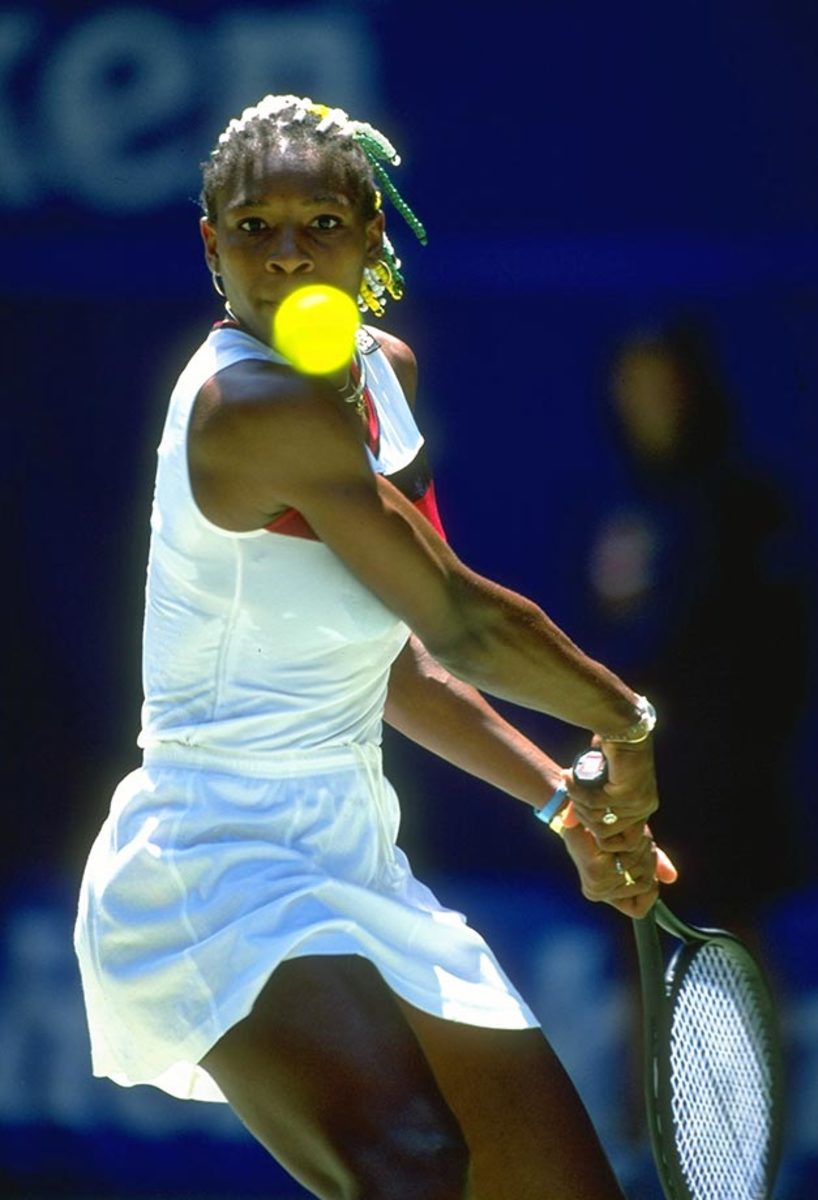Serena Williams isn't worried about history, she's just here to play

NEW YORK – This was always going to be the Serena Williams Open, what with her stalking history and being the last great American and 33 years old and all. We knew that once she had won her third major of the year at Wimbledon, and knew it even more last week when the women’s final sold out for the first time ever before the men’s. By the opening of play Monday, the 2015 U.S. Open had become New York’s hottest ticket. No one, not even her victims, wanted to miss out.
U.S. Open Day 1 recap: '14 runner-up Nishikori, Ivanovic upset in first round
“She wins so many Grand Slams,” said Vitalia Diatchenko, a nine-year old when Williams won the first time in Flushing Meadows. “I was wishing to play against her before she finished—because nobody knows how long she is going to continue to play. And now she’s in great form, and (with) this draw it was, I can play with her. I was happy. But then: No. Everything’s happened so badly for me.”
So it begins, then, with a whimper. Williams’s march toward her 22nd major title and a calendar year Grand Slam took, as she put it, a “definitely different and bizarre” first step Monday night, when a pre-match injury to Diatchenko’s left heel rendered the 86th-ranked Russian barely able to serve and forced her— after 27 anti-climactic minutes—to retire with Williams up 6–0, 2–0. The only moment of drama came after, when one of the souvenir balls Williams hit into the stands dribbled back on court. After a moment’s hesitation, Williams scooted around net, retrieved it and walked it over to a child in the front row. Cheering ensued. It continued through her on-court interview.
“I can feel the support on my journey. I love you. I appreciate all your support,” Williams told the crowd. “It feels so good. I’m so ready. Whatever happens, I’m here. I’m at home, where it all began in 1999, so….”
She should feel good. Williams’s 49-2 record this year has been belied by an uncharacteristic shakiness at the majors, especially in early rounds. Yet even before the world No. 1 hit her first ball Monday, No. 3 Maria Sharapova had withdrawn with injury and six seeds had tumbled out, including a troubling twosome—longtime rival Ana Ivanovic and one-time semi-protégé Sloane Stephens—lurking on her side of the draw. Not that Williams will admit, “usually," to peeking.
“I just take it as it comes and as it goes,” she said. “Do the best that I can and just go for it.”
Of course, anyone who has seen Williams at the Open since her first triumph here in 1999—at 17, in straight sets, over soon-supplanted genius Martina Hingis—knows how much emotion, profanity, competitiveness and bile bubbles beneath such benign cliches. With all its stresses and storms, no Slam has better matched her explosive nature than New York’s pitiless cauldron; that breakthrough set the tone for all that came after.
“It was in the tiebreak in the final,” Williams recalled. “I remember thinking—Martina had a second serve, and I’ll just never forget—I was, like, Serena, you’ve got to go for it. I went for it; I went for this huge forehand up the line. Something inside told me if I don’t do this then I’m not going to win. So just stepping up to the plate and being brave enough to go for it, that moment really shaped my whole career.”
Serena Williams enters the U.S. Open with no true rival to stand in her way
Still, factors from illness to temperament to family ties and tragedy have complicated matters, and no one helped simplify Williams’s approach more than her coach, Patrick Mouratoglou. Since she put herself in his hands in mid-2012, Williams has won eight majors, become more tactically versatile and embraced the chase to match and surpass Steffi Graf’s mark of 22 Grand Slam titles. In one sense, the man has had an easy job.
“She’s never satisfied,” Mouratoglou told me a year ago. “She always wants more. Like how many times you’ve seen someone win a tournament, then be happy for five years?”
When I answered with Iva Majoli, who beat Hingis in the ’97 French Open for her lone major title, Mouratoglou said, “I have another name in mind that is French and won a Grand Slam, and he’s still partying like 20 or 30 years after.”
Indeed, Yannick Noah never matched his 1983 French Open win; Williams won her first in 2002 and repeated, at long last, in 2013. “He is a great guy,” Mouratoglou continued. “But he doesn’t have this mindset of someone who wins Roland Garros, who didn’t win for 11 years, is stretching right after she leaves the court and she says to me, ‘Okay, now we have to win Wimbledon.’
Daily Data Viz: What does it take to win four consecutive Grand Slams?
“Then, we all go eat together and everyone in the team says, ‘Tonight we have to party.’ We say okay and then I’m with her in the car. When we arrive in front of the place she says, ‘Let’s go back home.' She’s already somewhere else. She’s more professional, because she wants more.”
That kind of fire was necessary when Williams tunneled through last year’s mini-slump. This year is different. Amid the growing hype storm, Mouratoglou is trying to soft-pedal the implications. Now, “it’s more the opposite,” he said after Monday night’s win. “At the moment the most important thing was to take distance, and realize whether she wins or loses it’s not going to change as much as people try to make her think. Her career is already so big. I told her, ‘It’s not that you have one shot to win 22nd. You have maybe eight shots, so you are allowed to miss it.
“If it’s now, great. If not, you do it next time. This is distance. People are pressuring her, but if you think with distance you can find a way to keep the pressure away. It is about history. Otherwise she would stop. But she doesn’t have to do it right now.”
U.S. Open Day 1 after dark: Serena, Nadal advance; Monfils retires
Indeed, for all the talk about Williams becoming the first tennis player since Graf in 1988 to complete a true Grand Slam, the prospect hardly seems a heavy load. Beating her older sister, Venus, to the family’s first Grand Slam title was a far more loaded family drama, tennis-wise, and the murder of another sister, Yetunde Price, and Serena’s near-fatal embolism have left the family hard-wired with perspective.
“I’m not hyped up: If it happens, it happens; if it doesn’t, it doesn’t,” her mother, Oracene Price said, laughing, Monday night. “She’s made so many accomplishments in her life already, and that would be even better. But all she can do is stay calm and collected and go with the flow. Have fun doing it. She gets tired of y’all lunatics, but she’s handling it.”
This lunatic has been coming to the Open for a quarter-century, and each year a bit of its infamous manic edge has been sanded down. It is, mostly, for the better. The half-finished installation of a roof on Arthur Ashe Stadium has already transformed an abomination into a brighter and quieter facility, one that, Serena said, “feels more intimate, which is weird, but it does. It feels more private.” And already the vague threat that hung over the place, the idea that just about anything can happen, has disappeared.
Maybe that’s too much to conclude from one night, one match. But I’ve been covering the Williams clan for 19 years, and time has smoothed some edges there, too. The tournament’s first day made it easy to envision an Open without chaos, a Serena without drama. Both were unthinkable once, but the possibility suddenly looms. Get ready for a lovefest. If that sounds dull, you can always pray for rain.
SERENA'S GRAND SLAM FASHION
Serena Williams Grand Slam Fashion Statements
2016 Australian Open
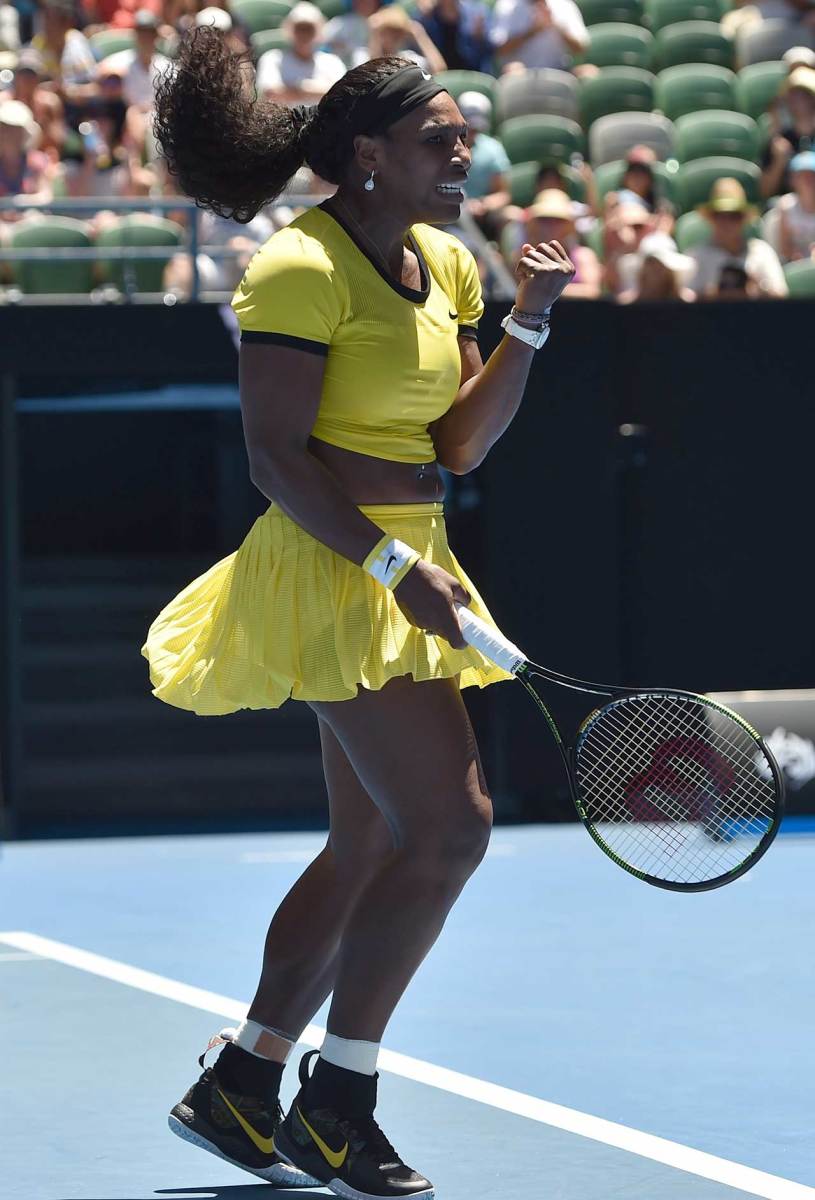
Here's a reverse chronological look at Serena Williams's fashion at grand slam events over the years, beginning with the 2016 Australian Open.
2015 U.S. Open
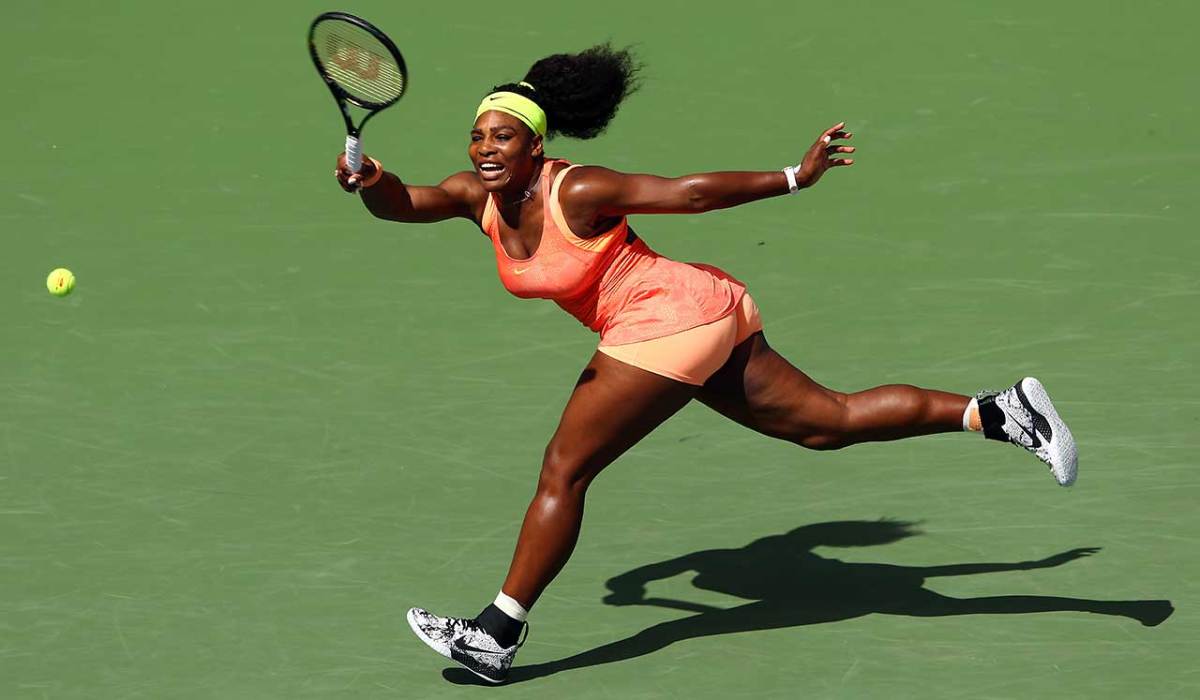
2015 Wimbledon
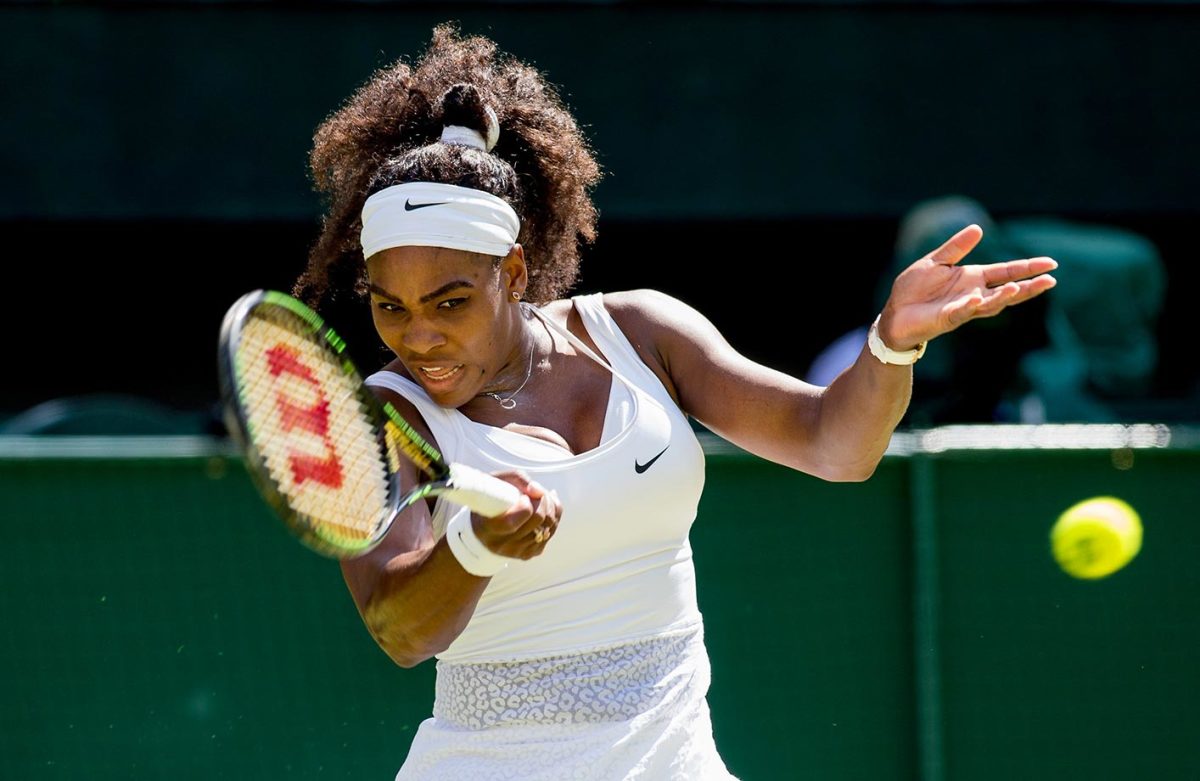
2015 French Open
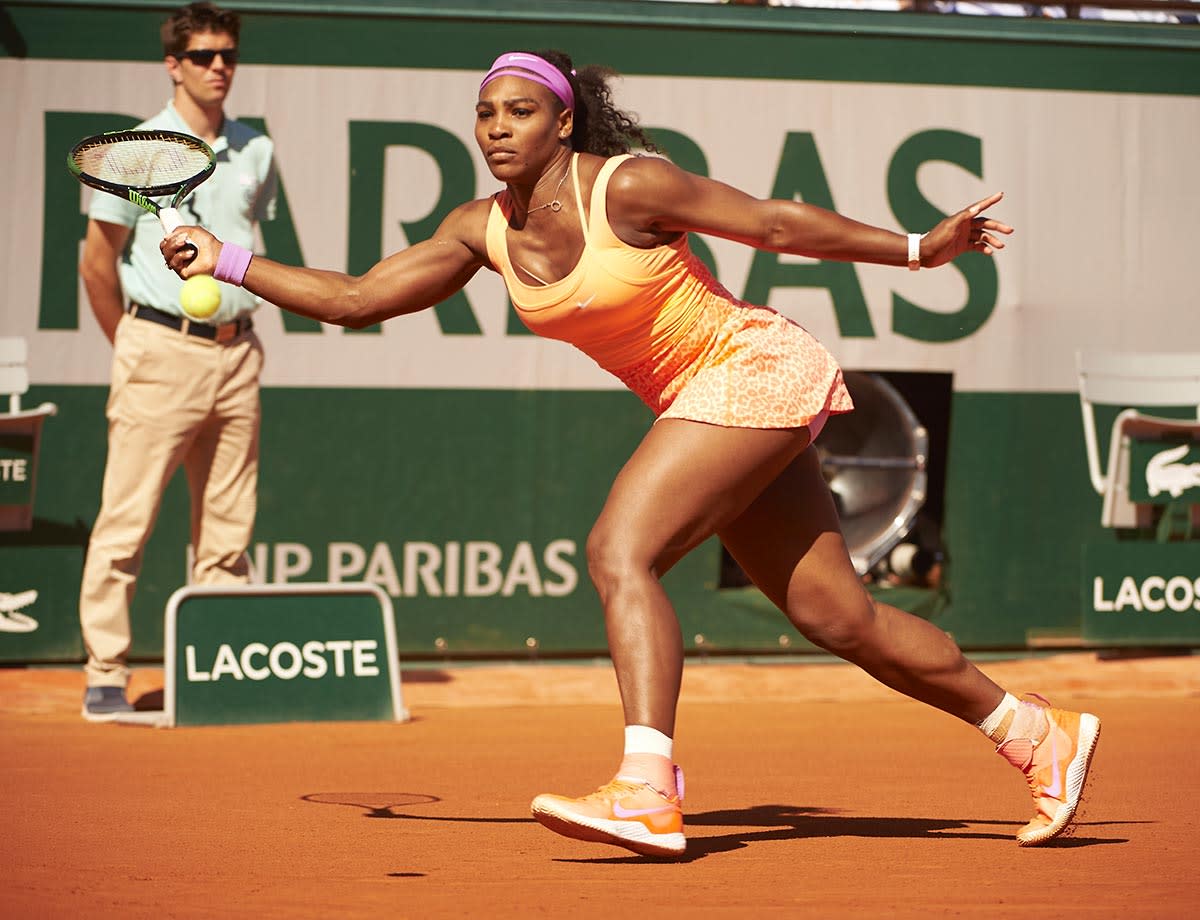
2015 Australian Open
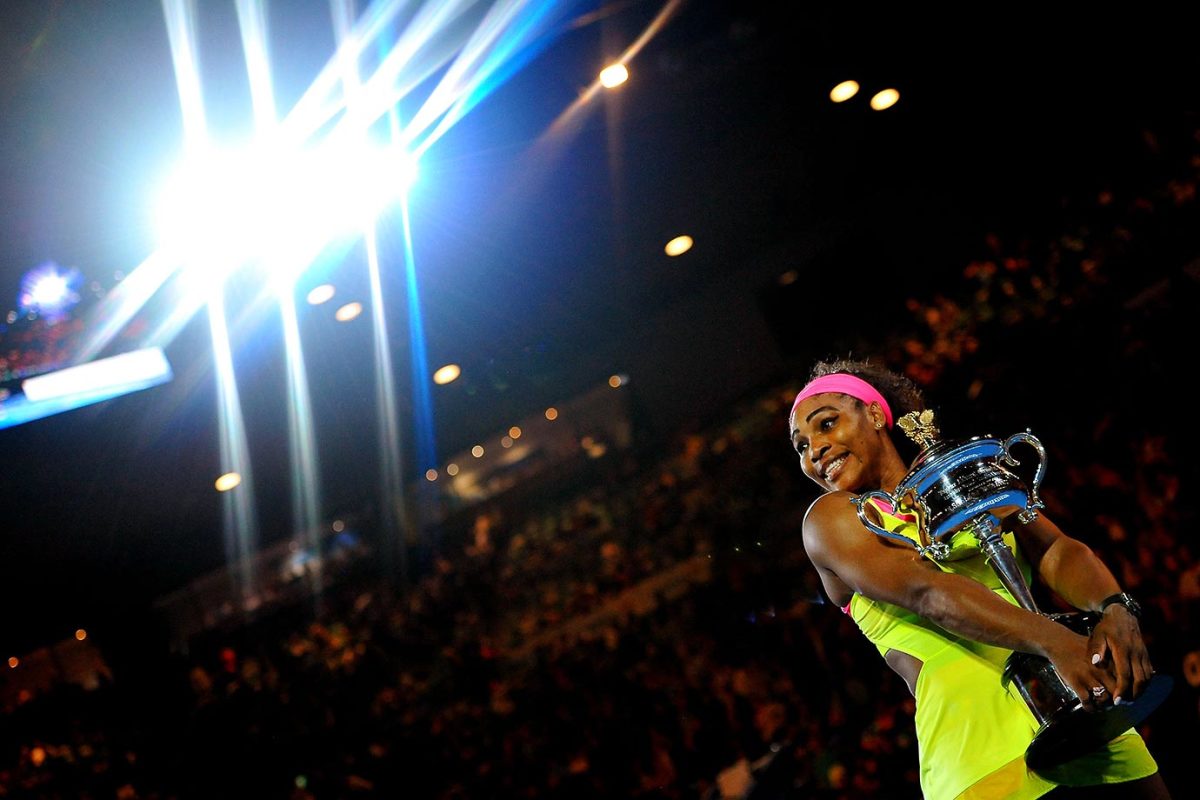
2014 U.S. Open
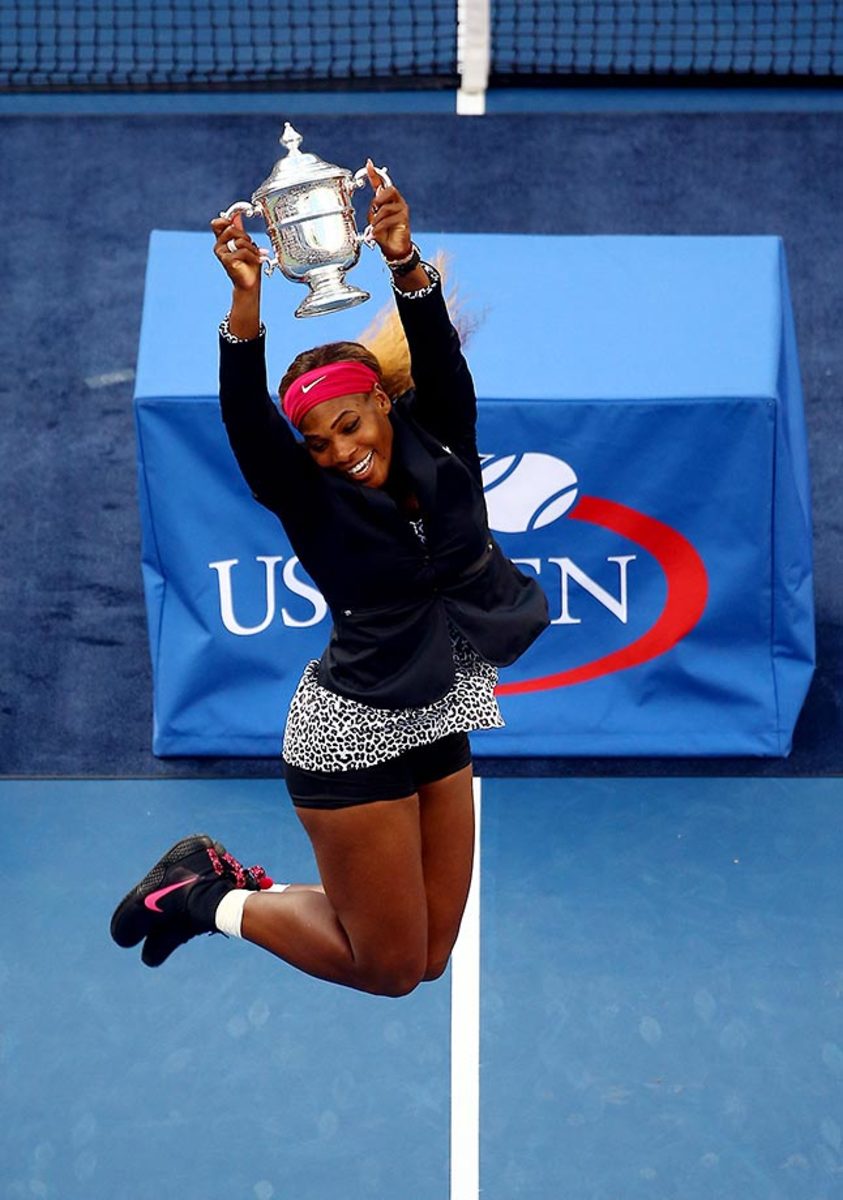
2014 Wimbledon
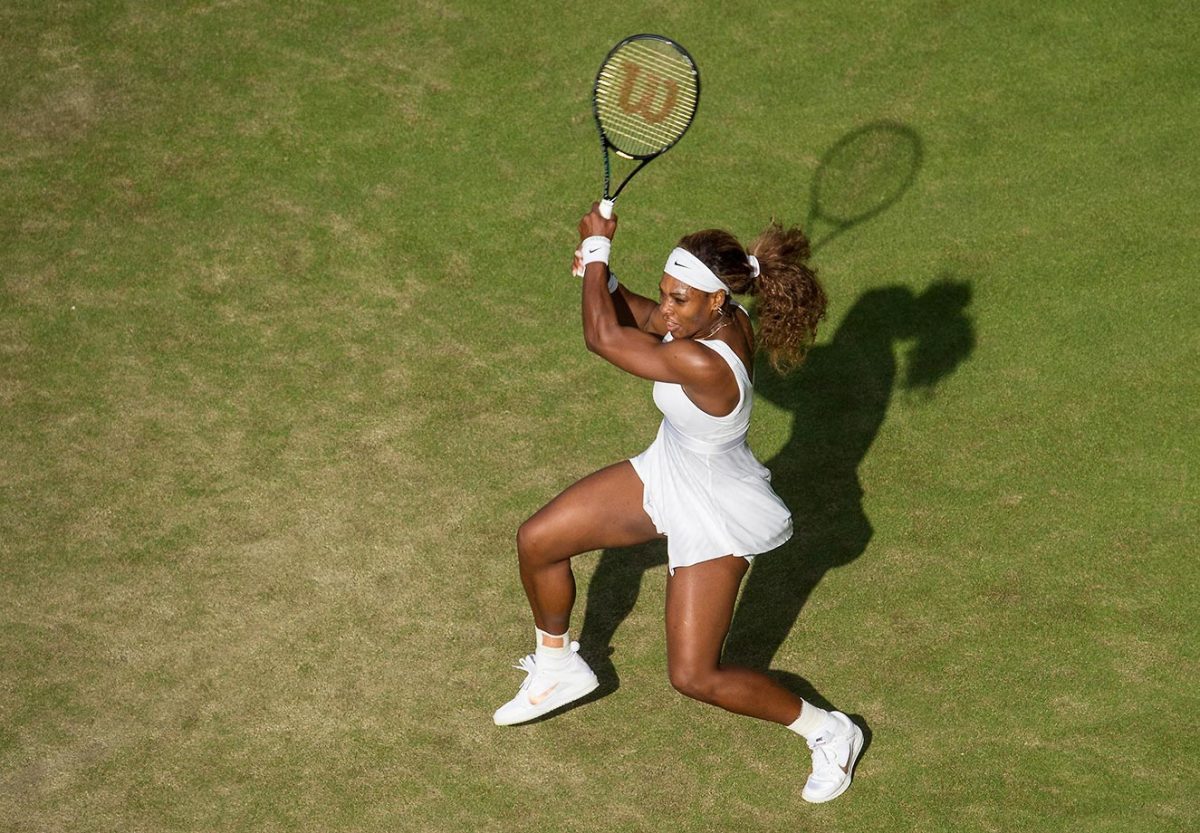
2014 French Open
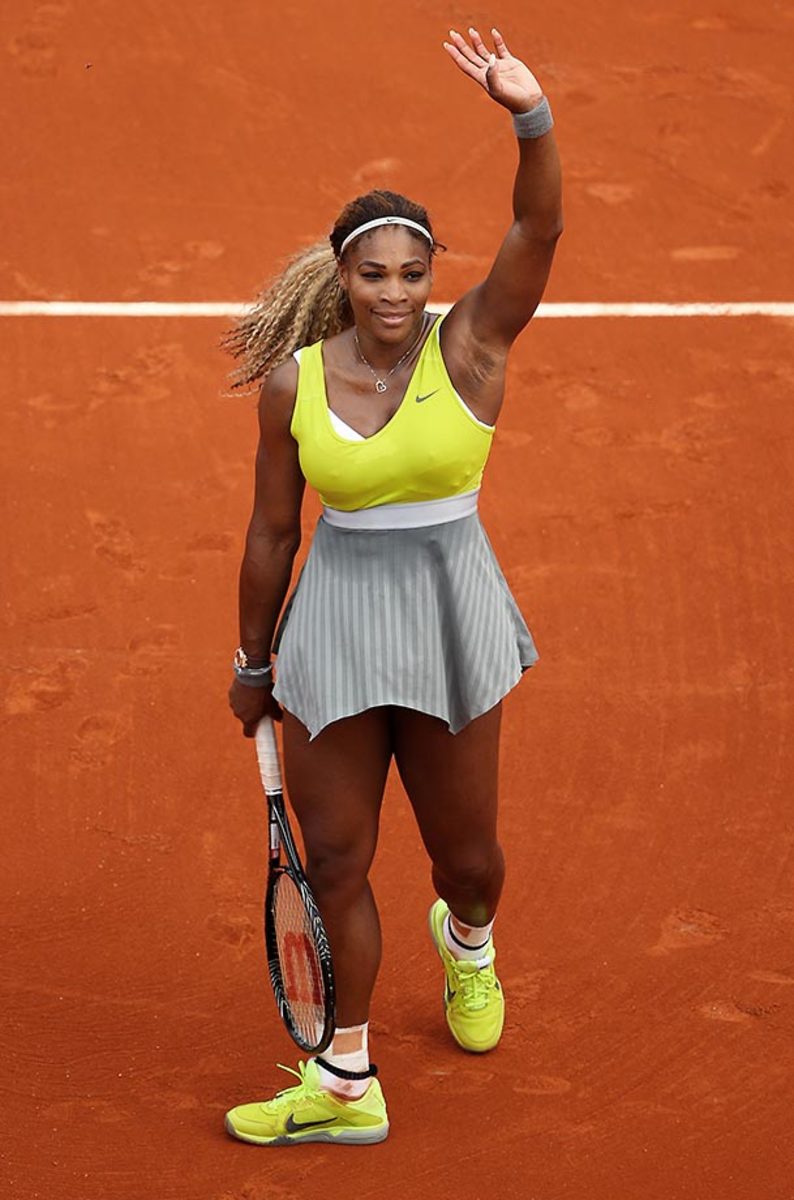
2014 Australian Open
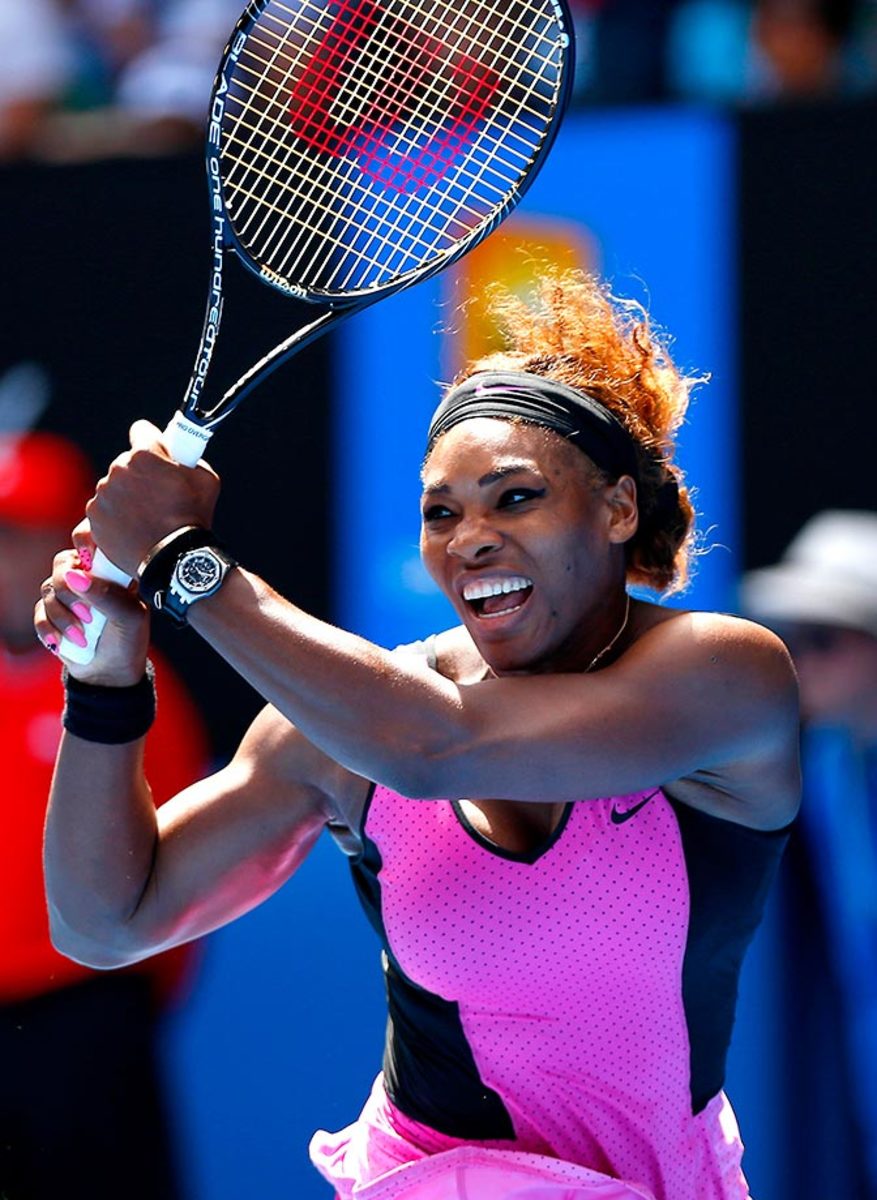
2013 U.S. Open
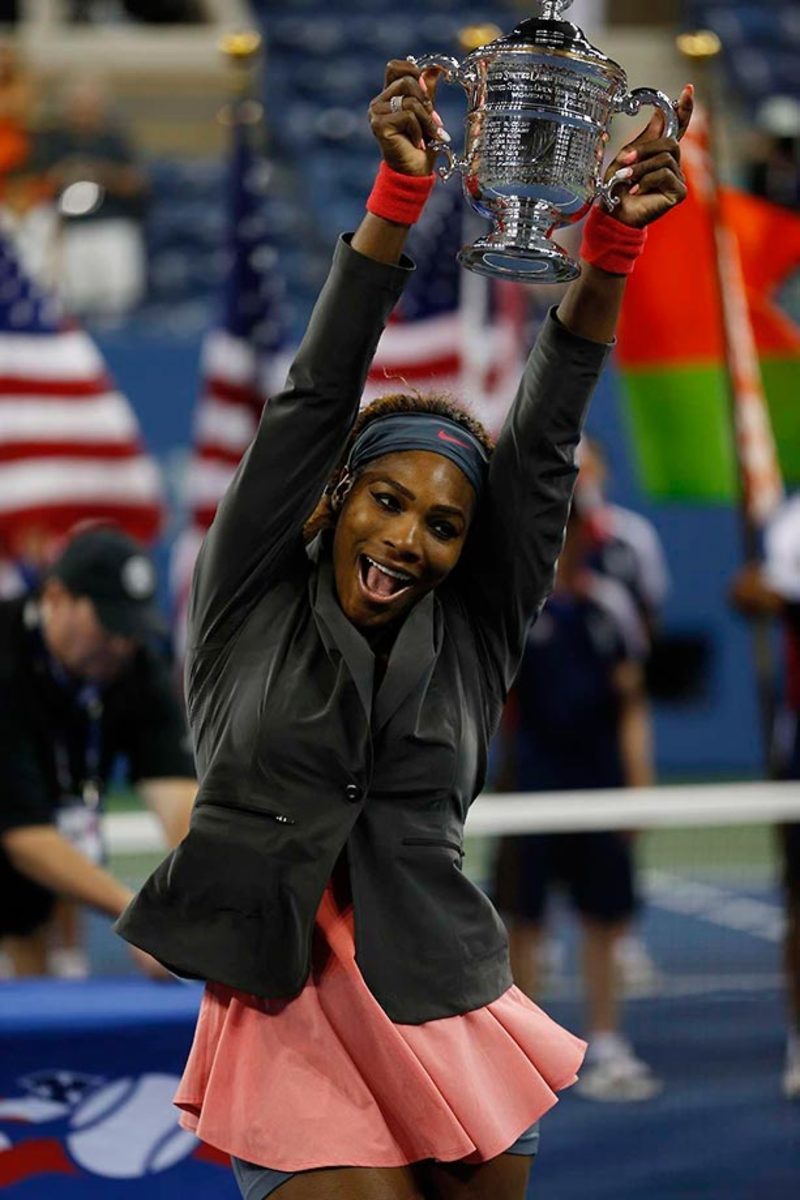
2013 Wimbledon
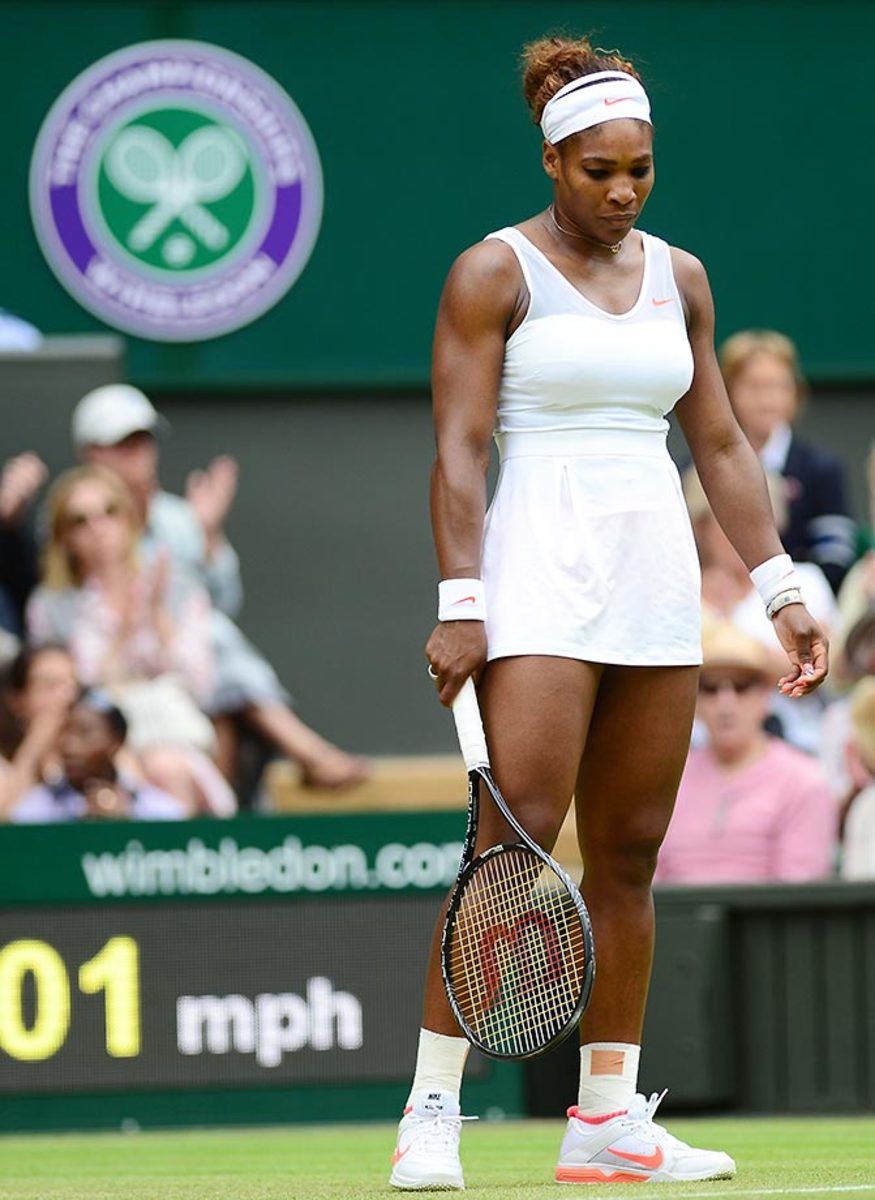
2013 French Open
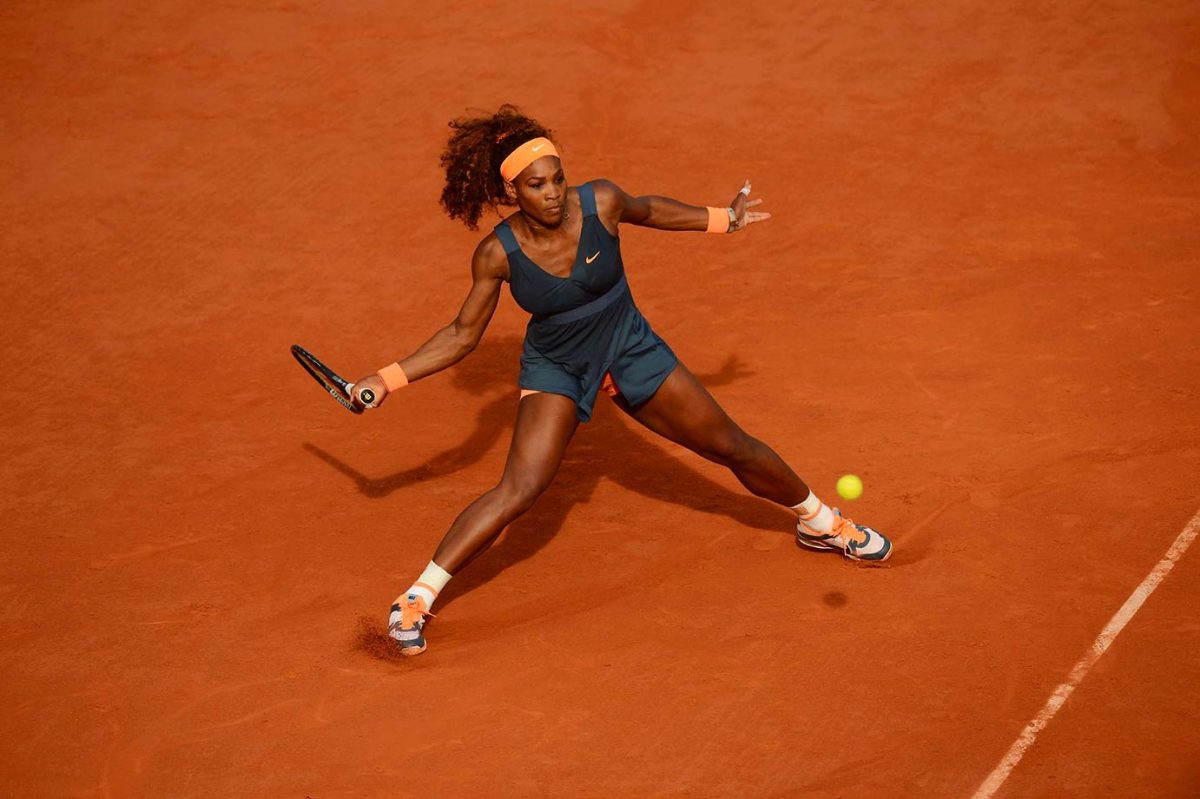
2013 Australian Open
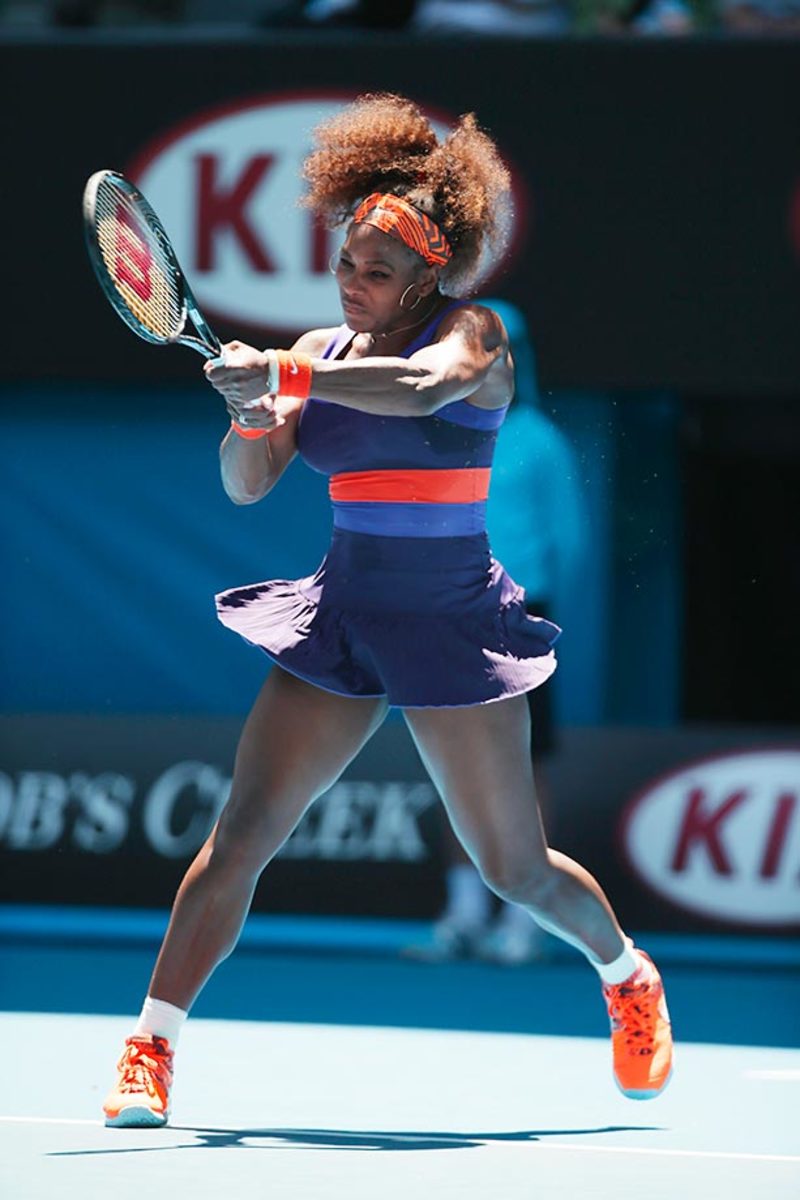
2012 U.S. Open
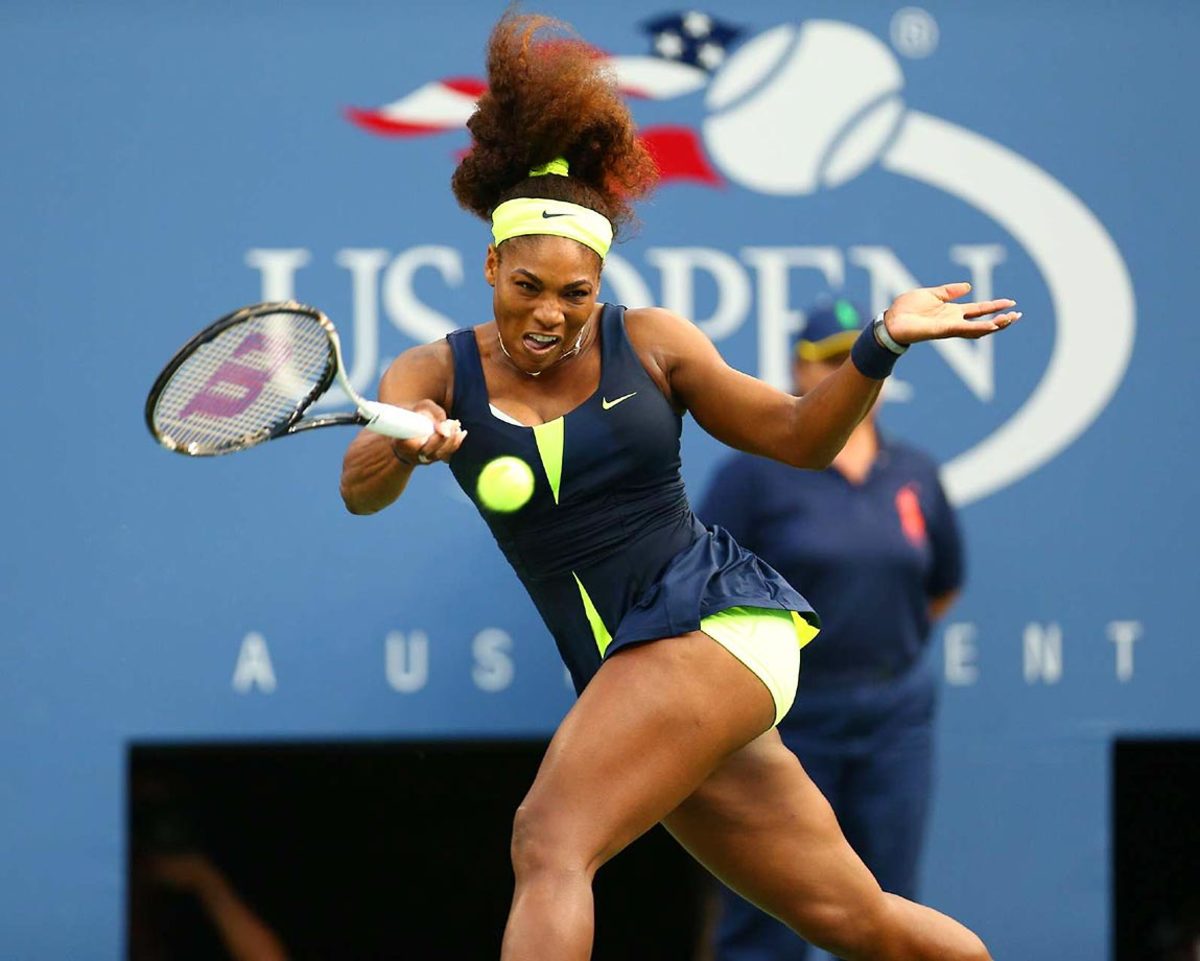
2012 Wimbledon
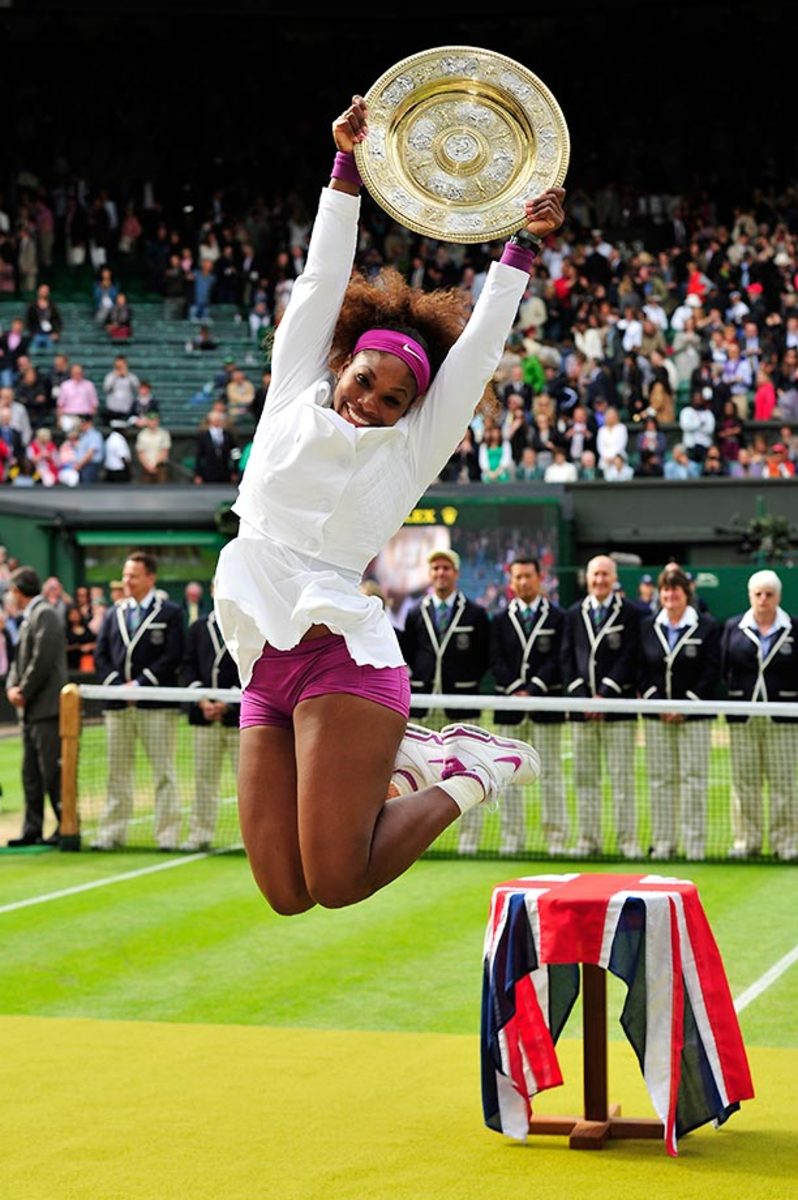
2012 French Open
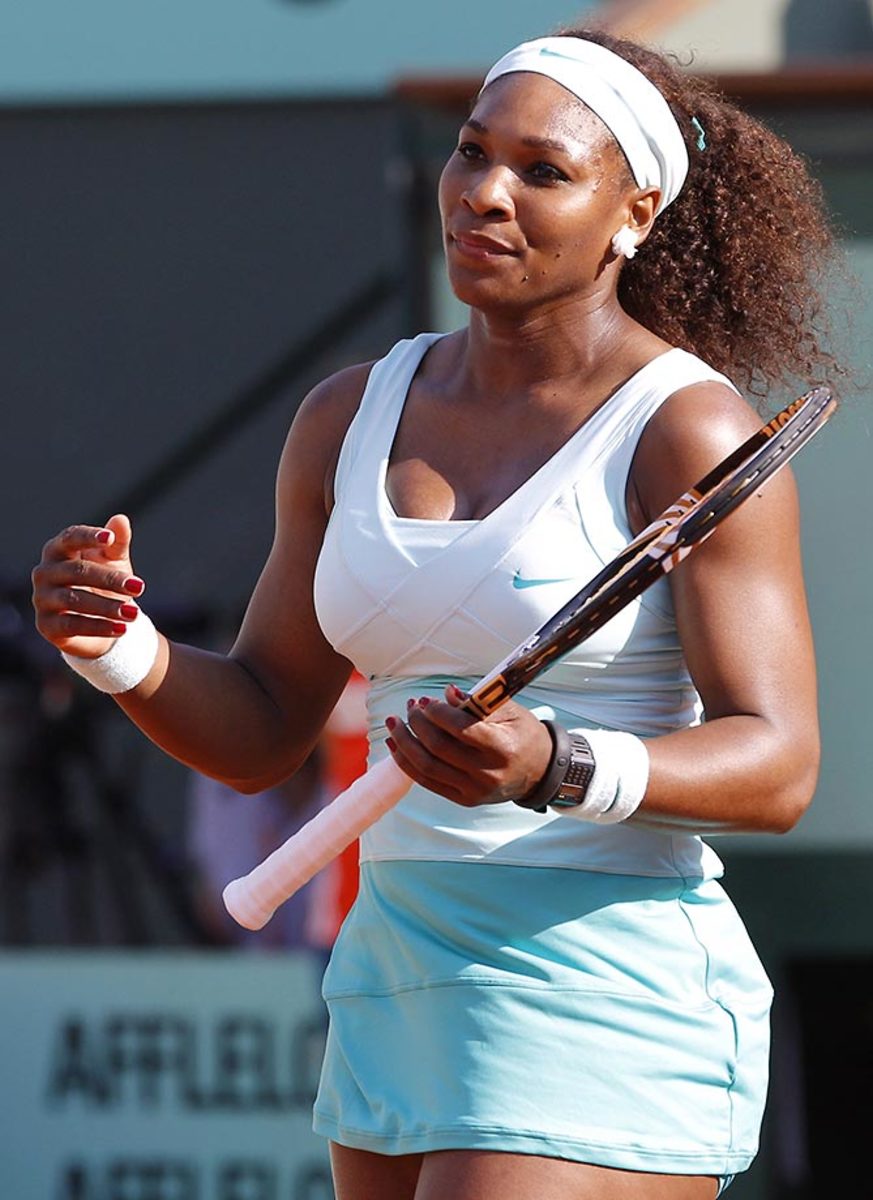
2012 Australian Open
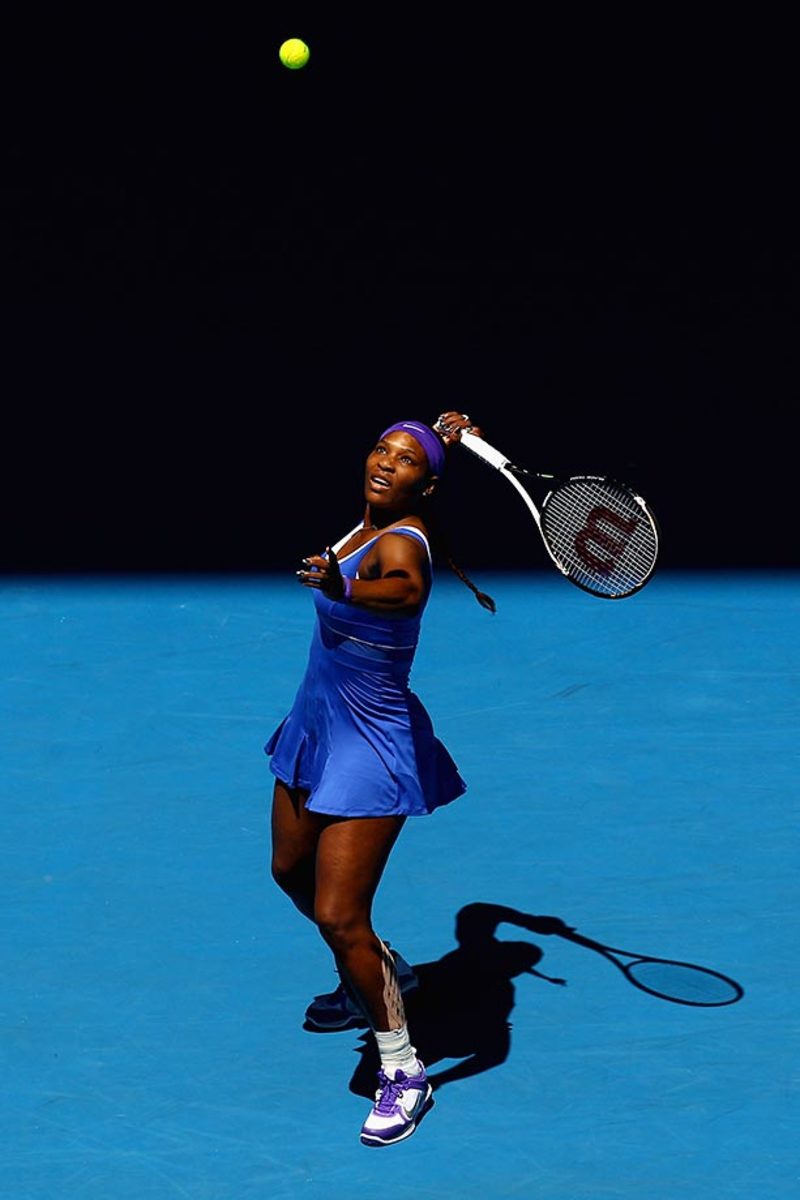
2011 U.S. Open
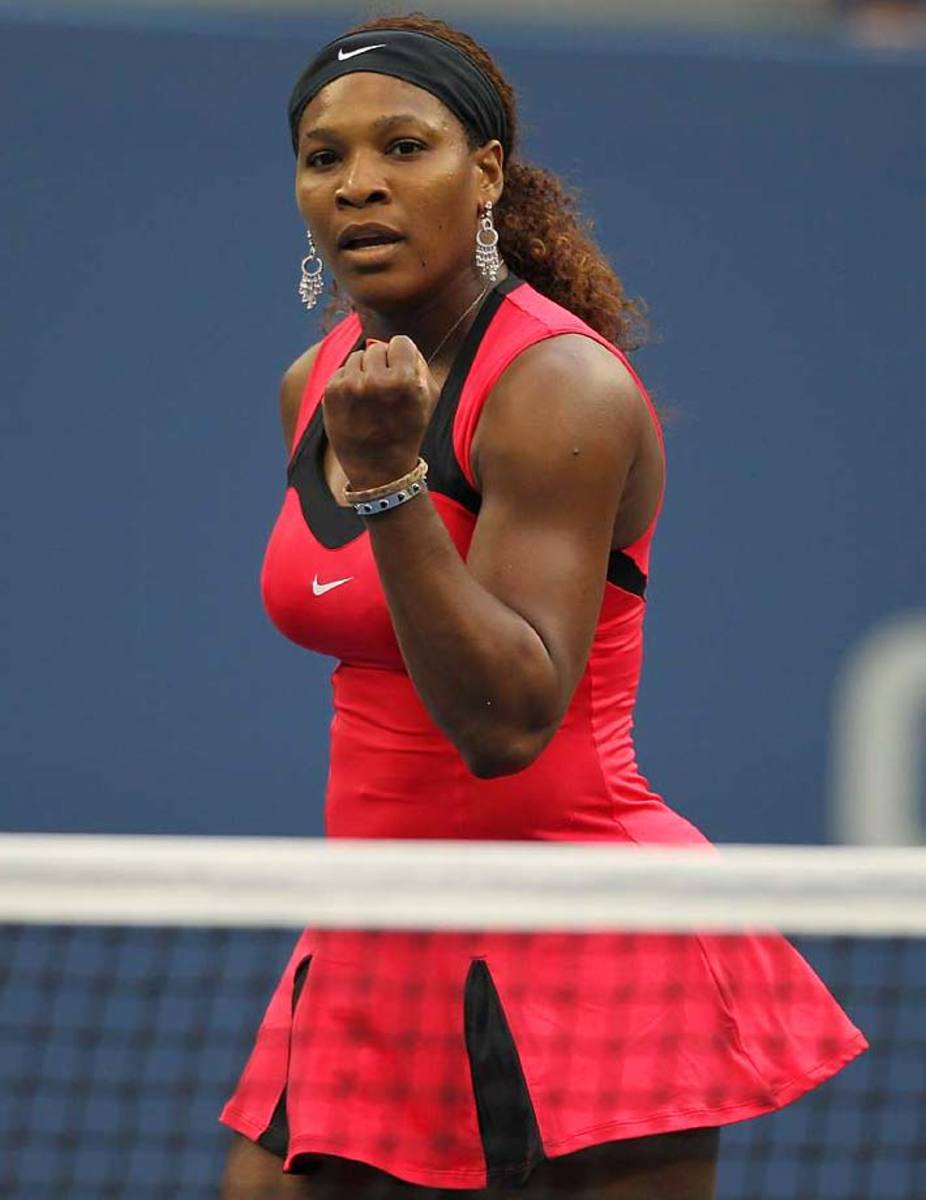
2011 Wimbledon
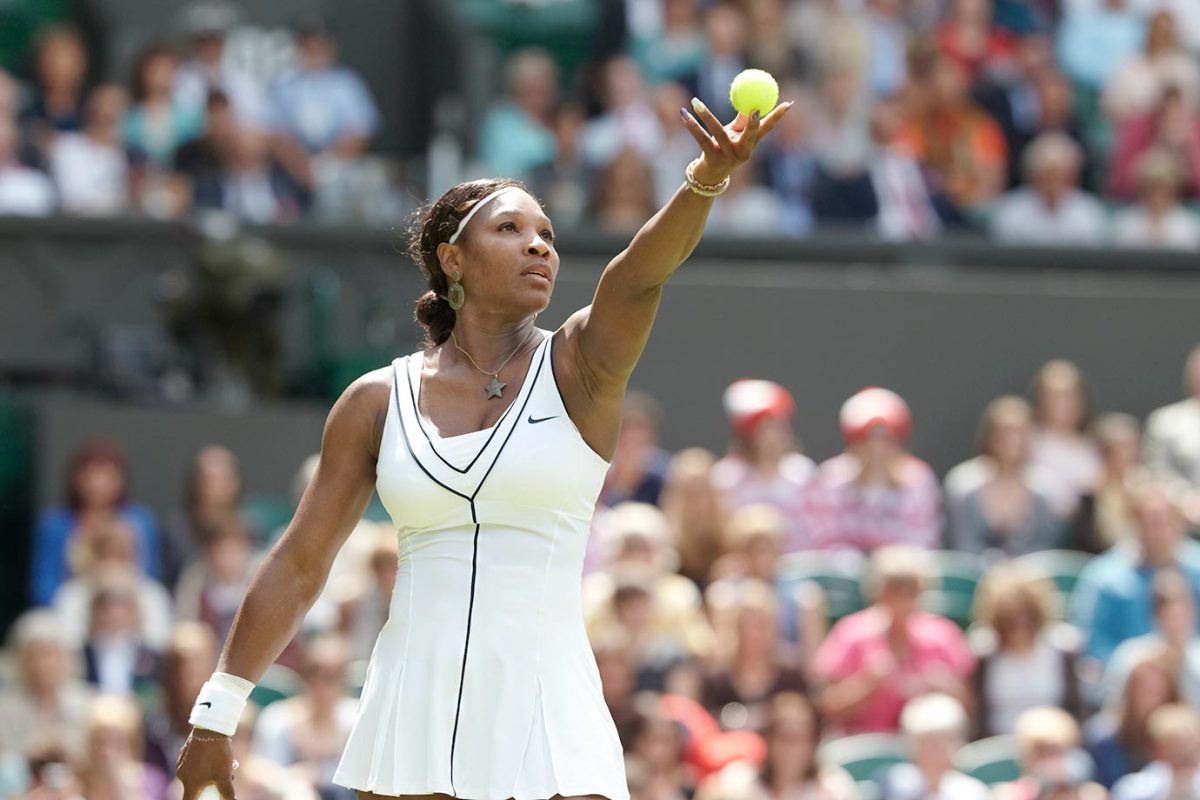
2010 Wimbledon
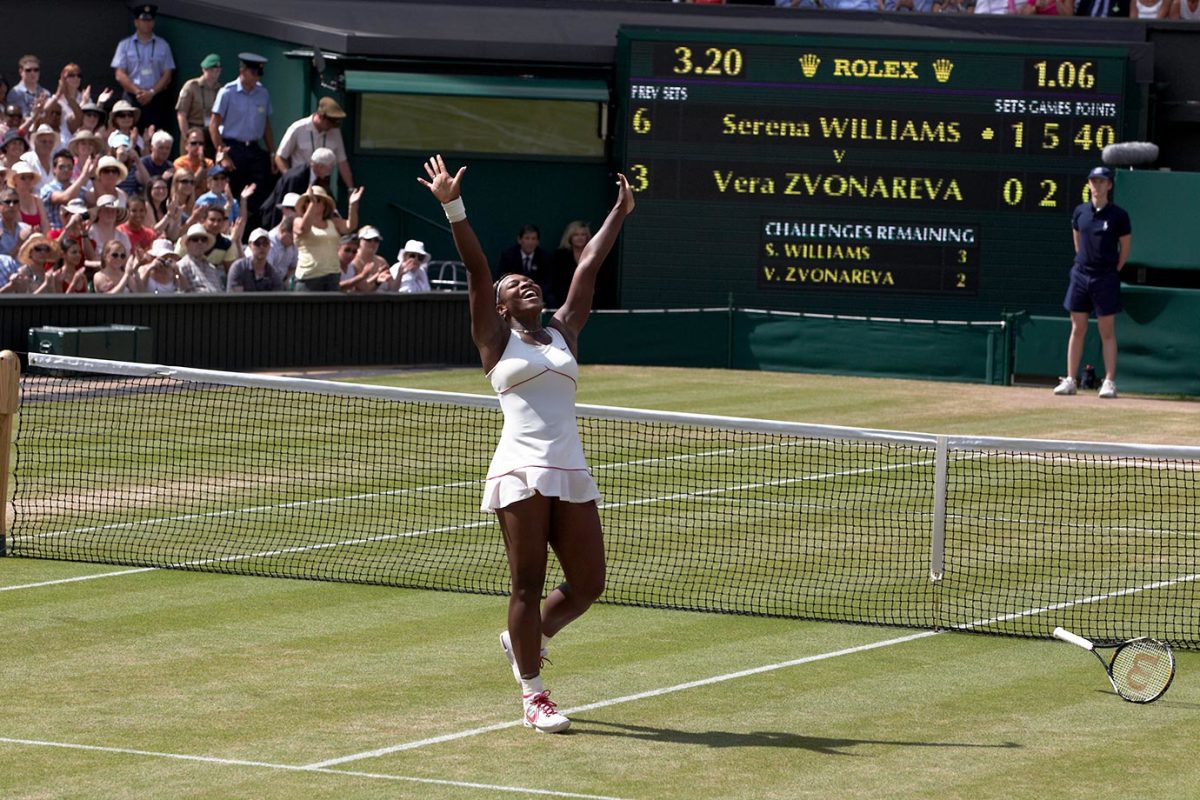
2010 French Open
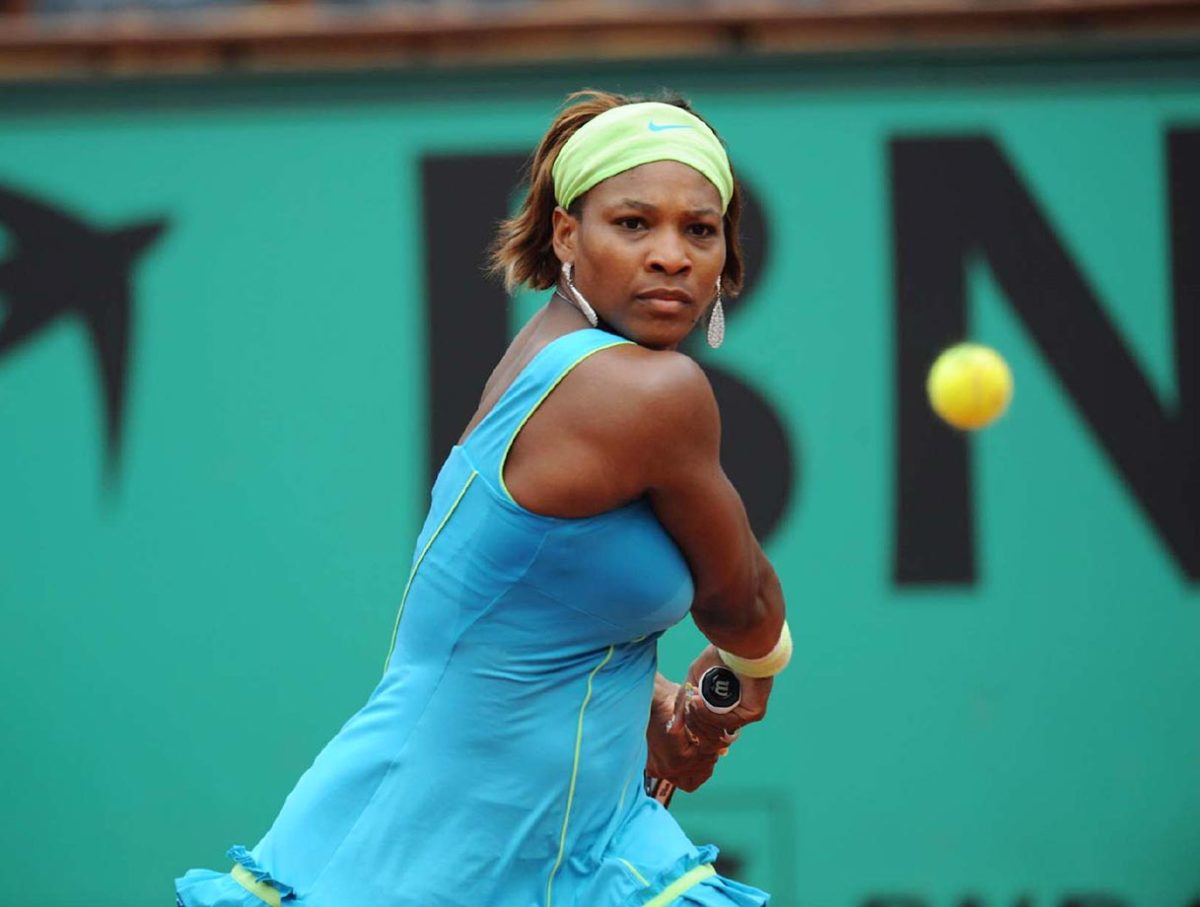
2010 Australian Open
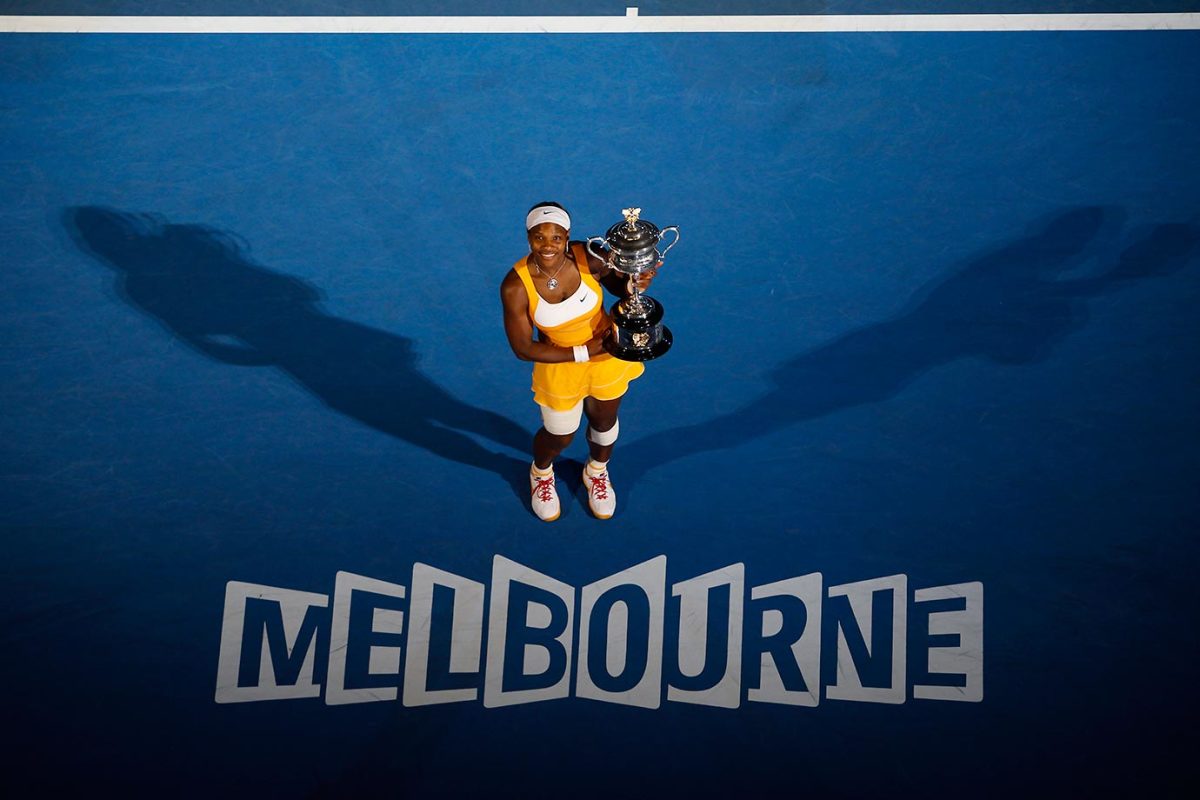
2009 U.S. Open
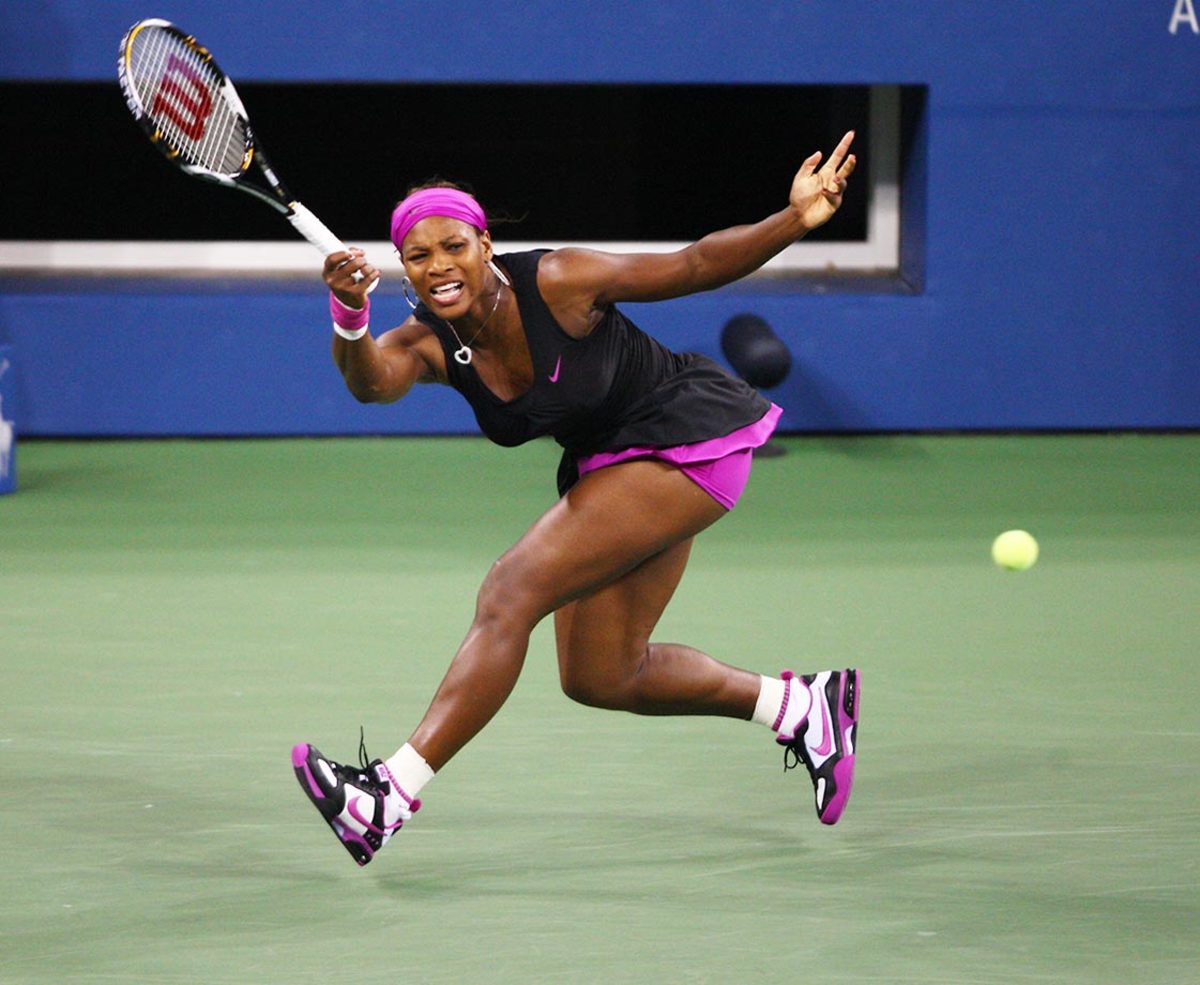
2009 Wimbledon
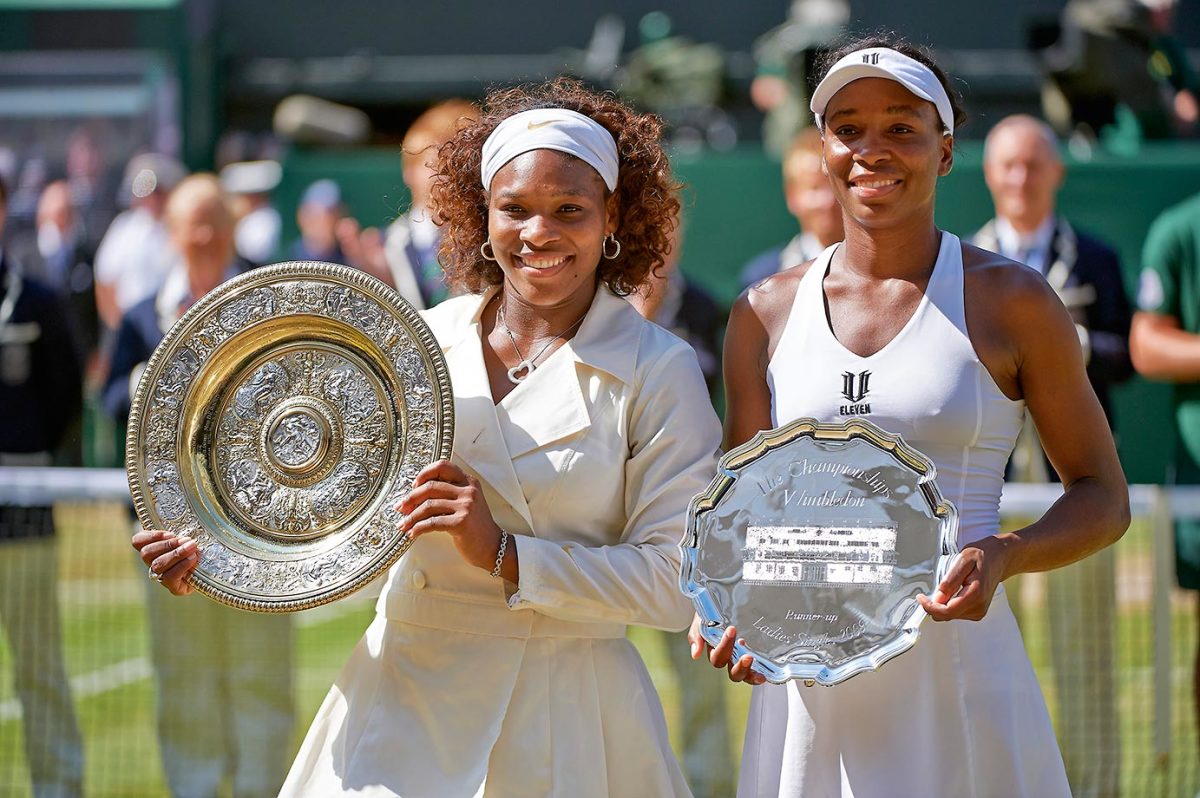
2009 French Open
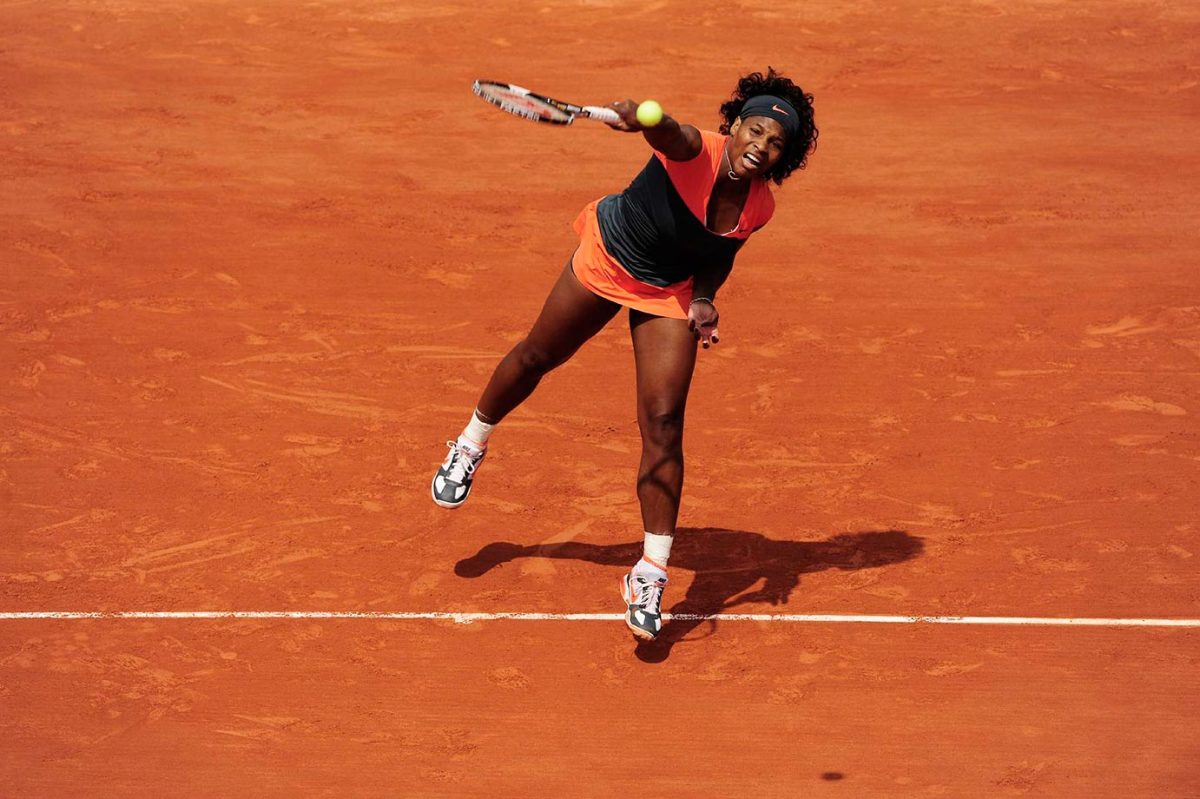
2009 Australian Open
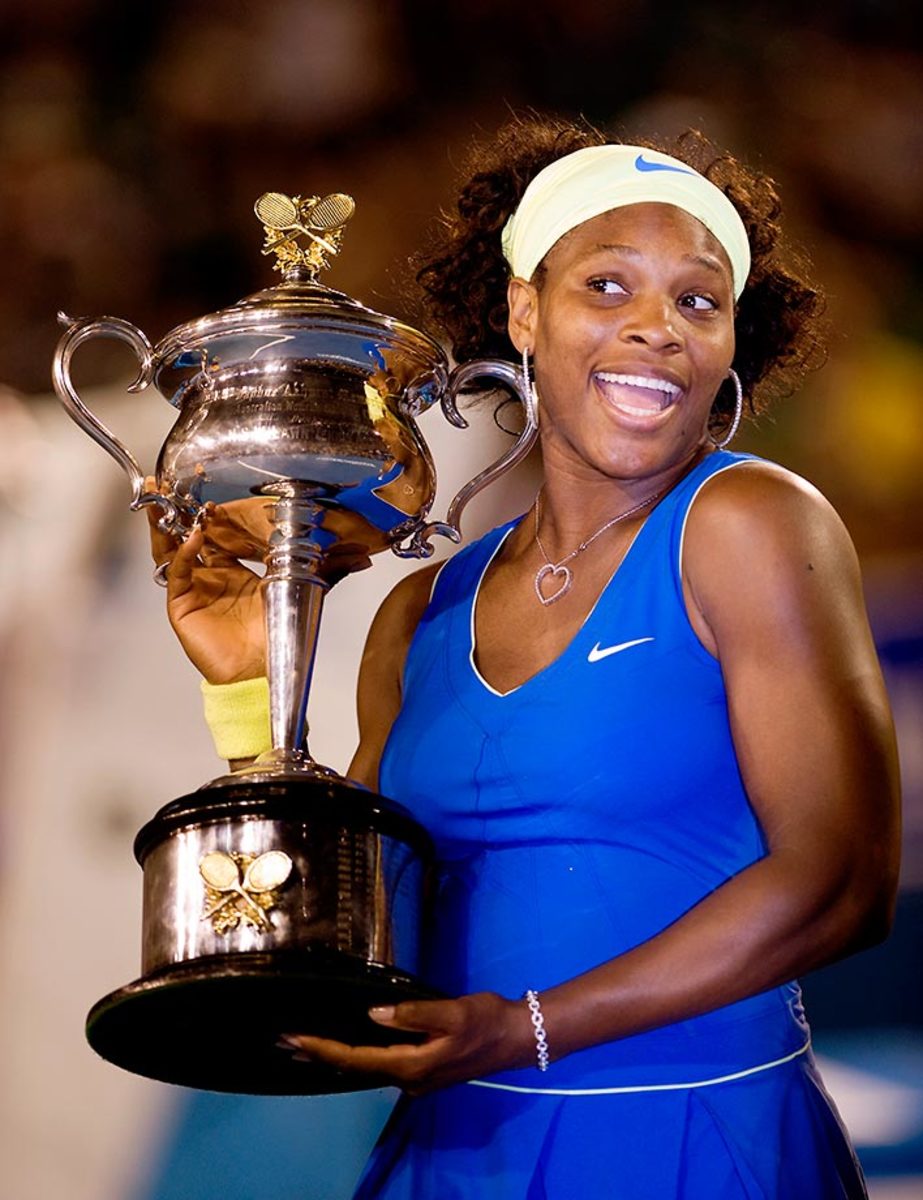
2008 U.S. Open
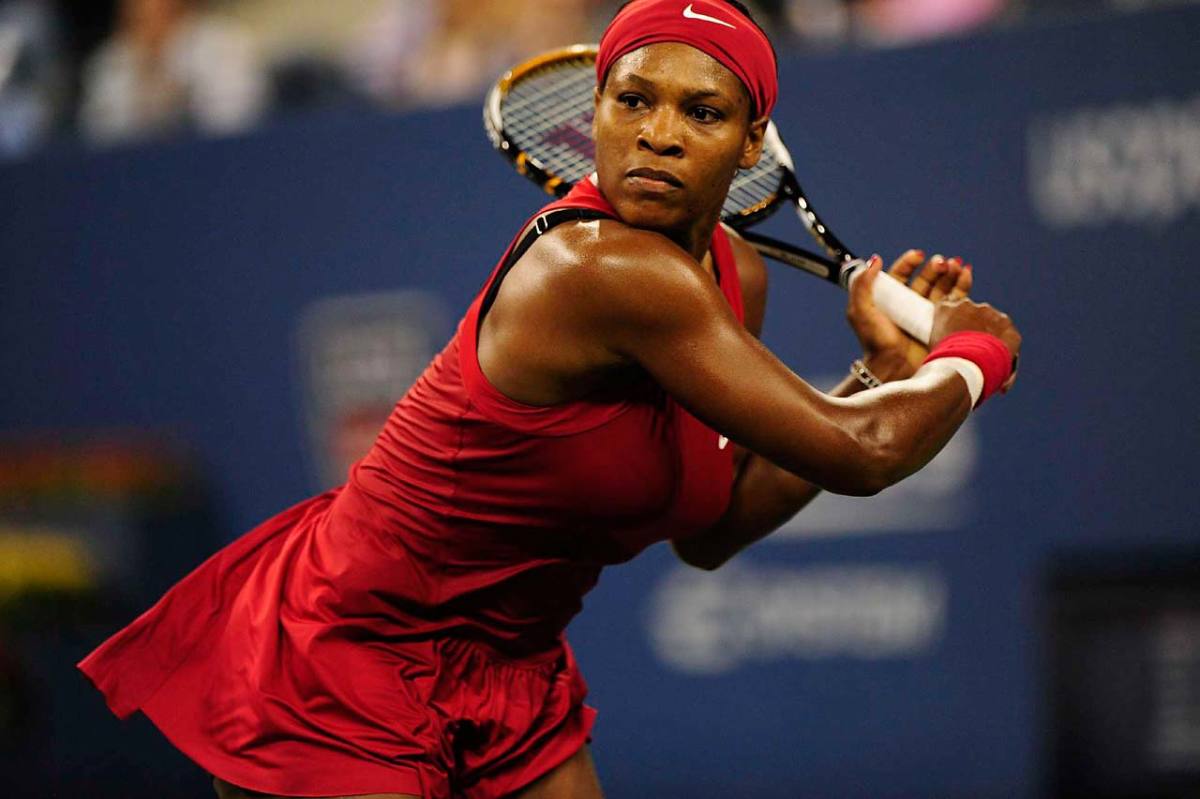
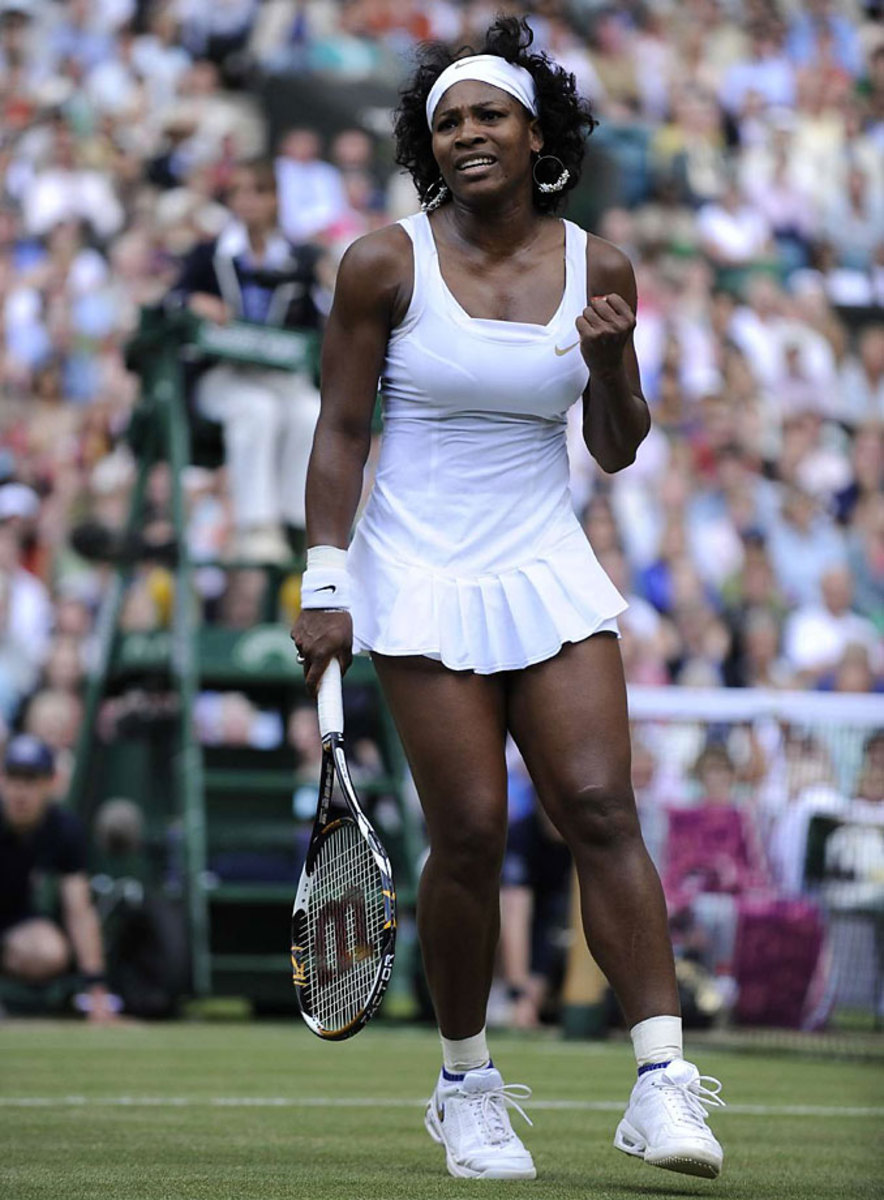
2008 French Open
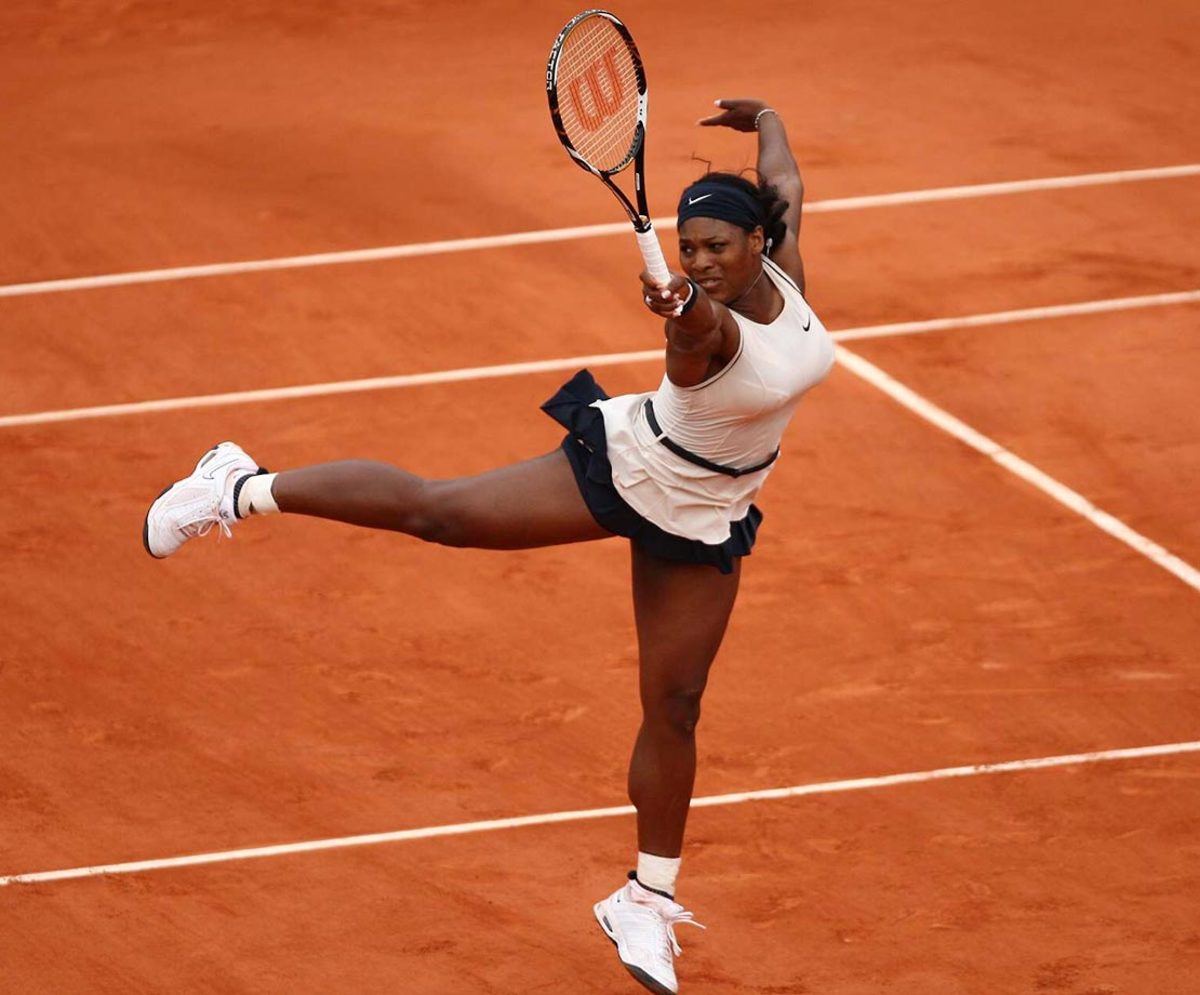
2008 Australian Open
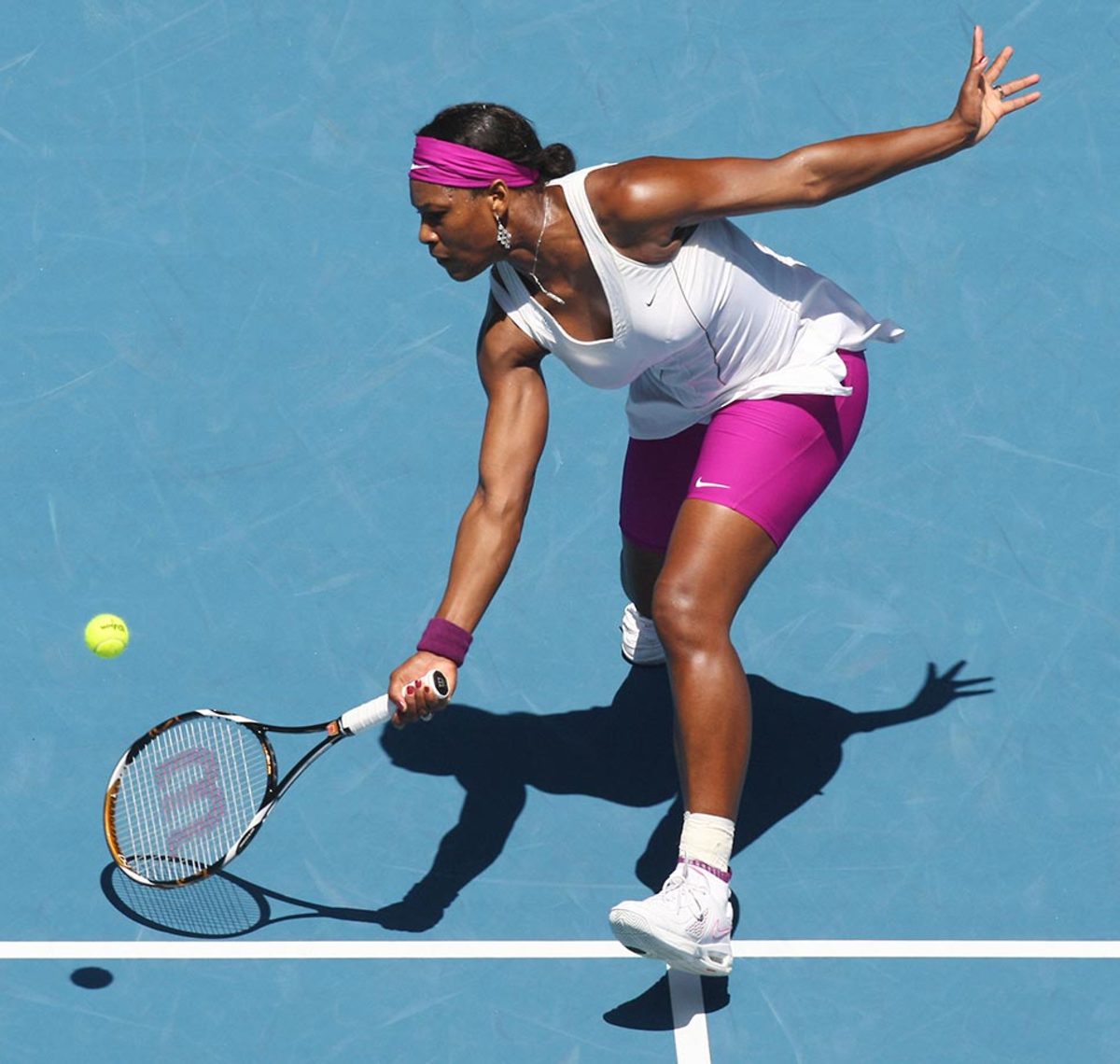
2007 U.S. Open
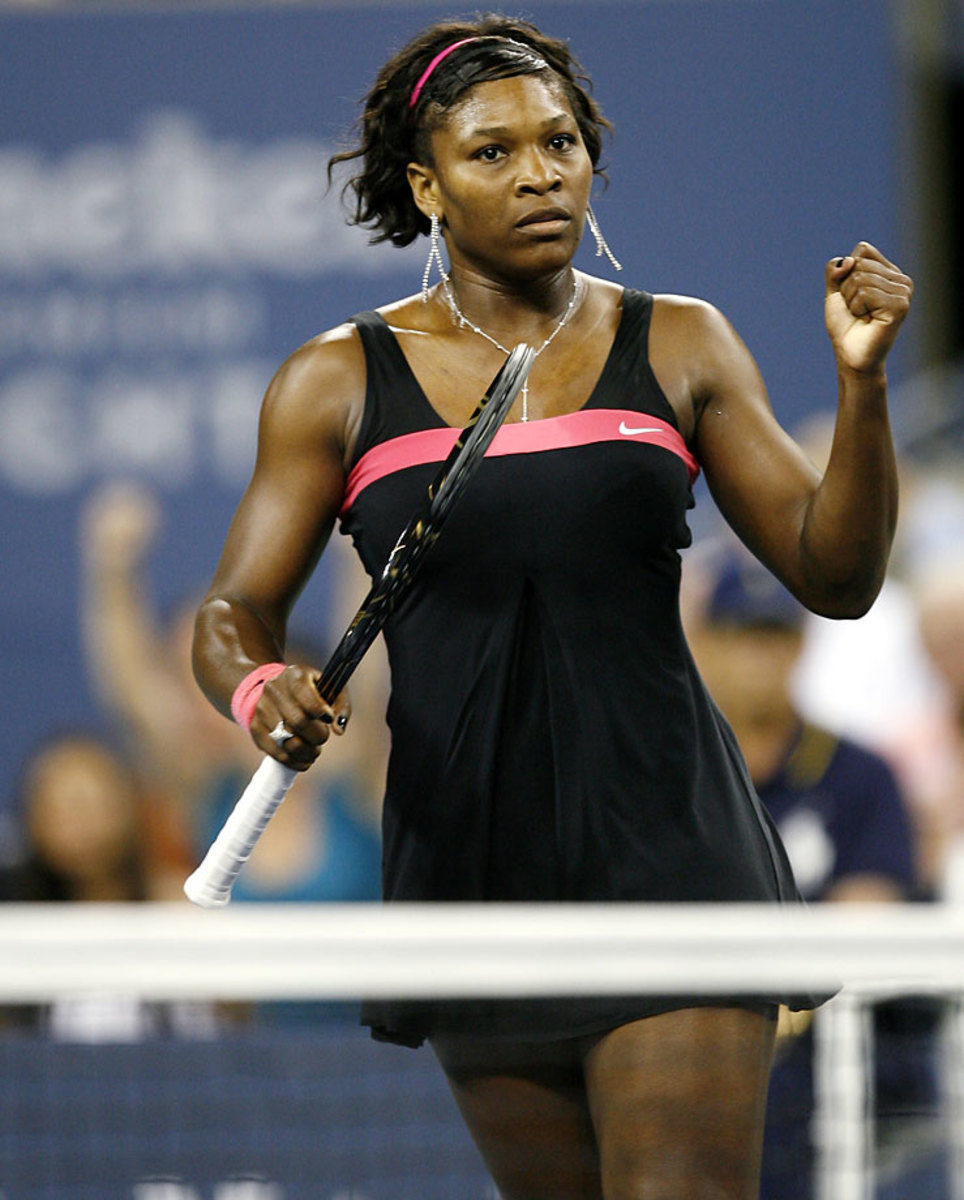
2007 Wimbledon
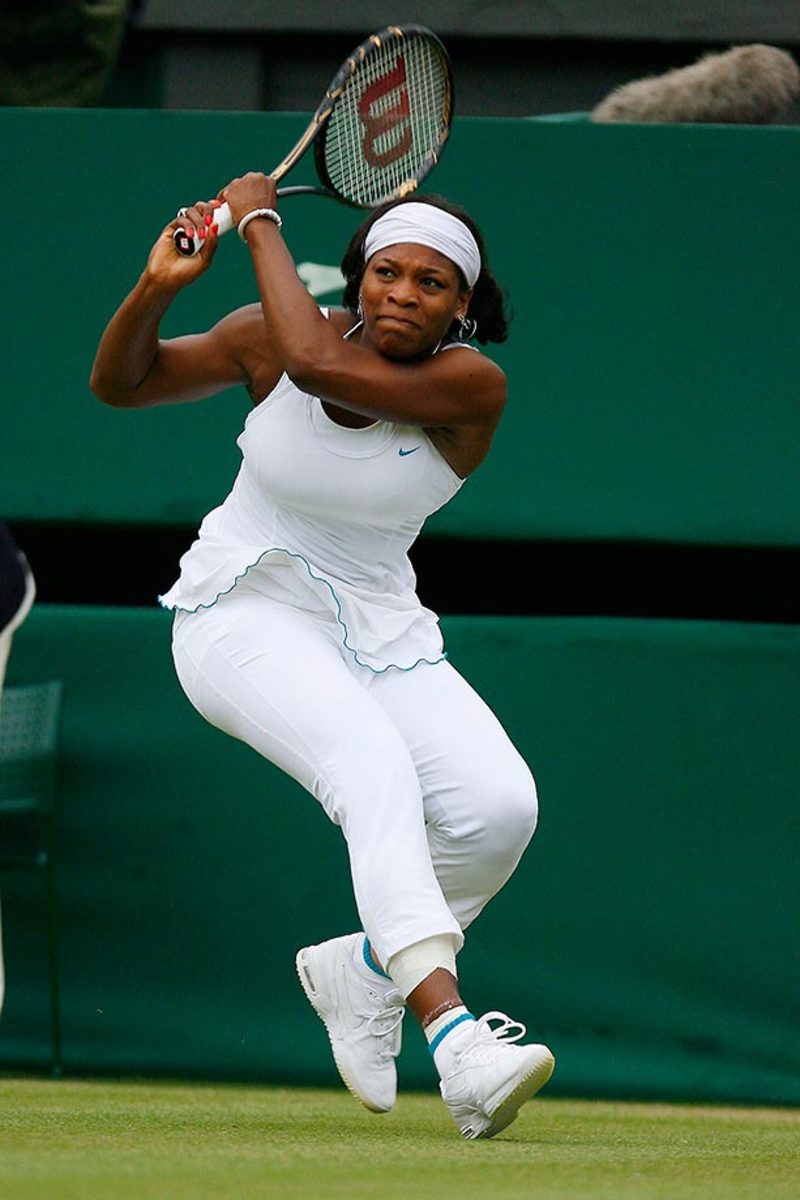
2007 French Open
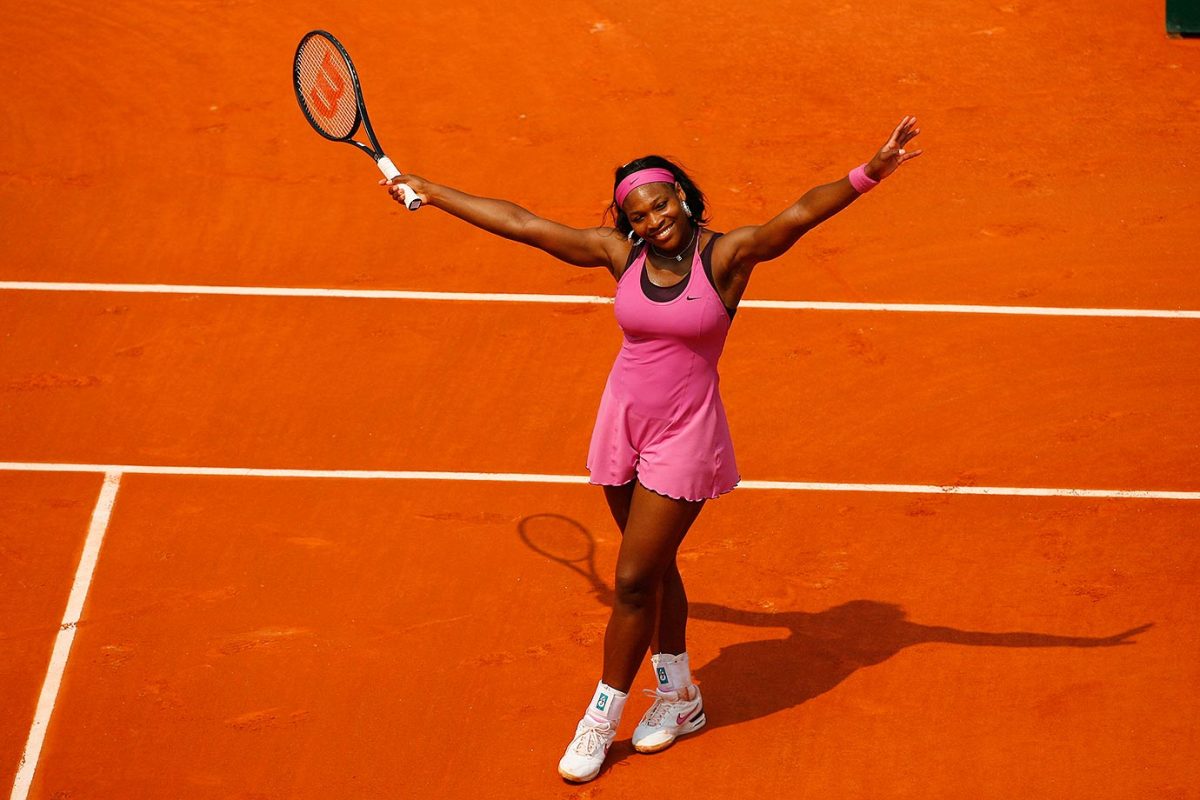
2007 Australian Open
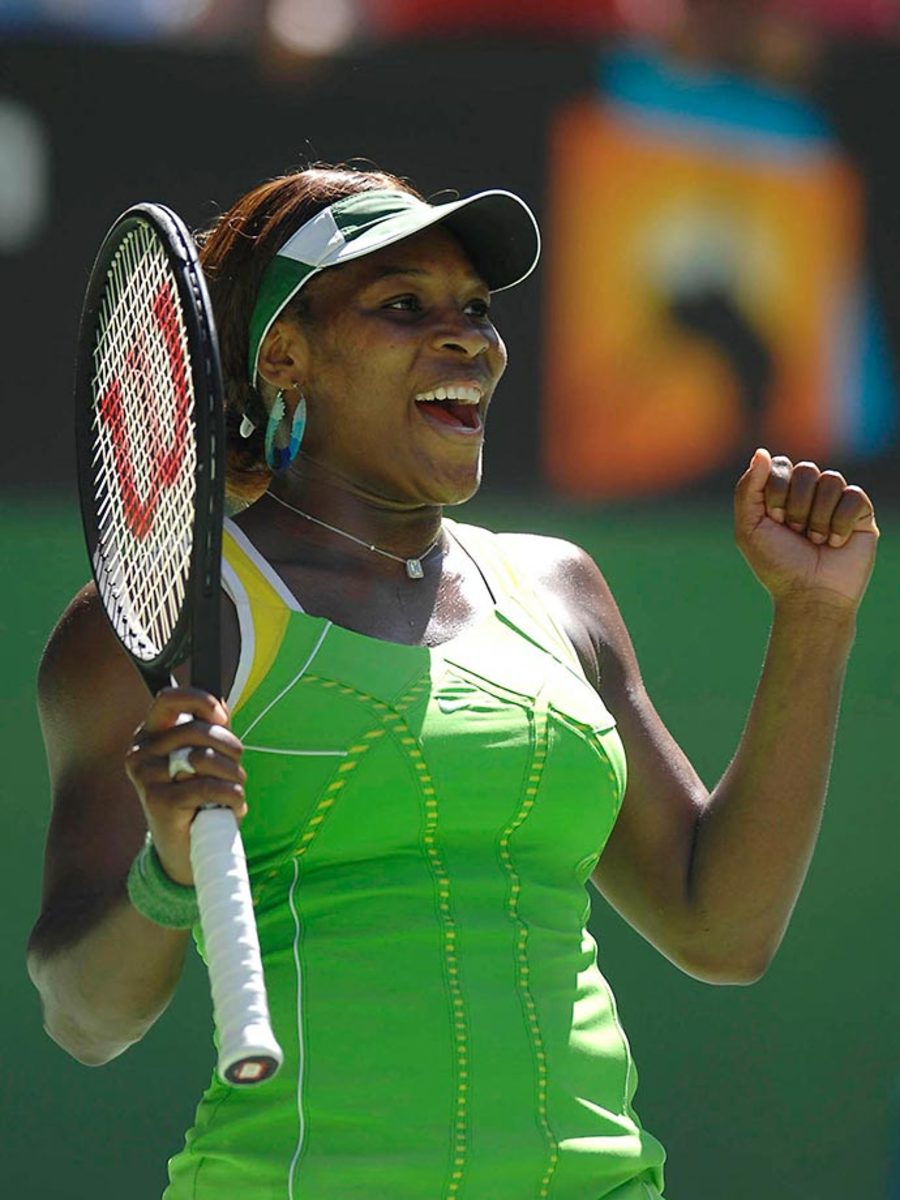
2006 U.S. Open
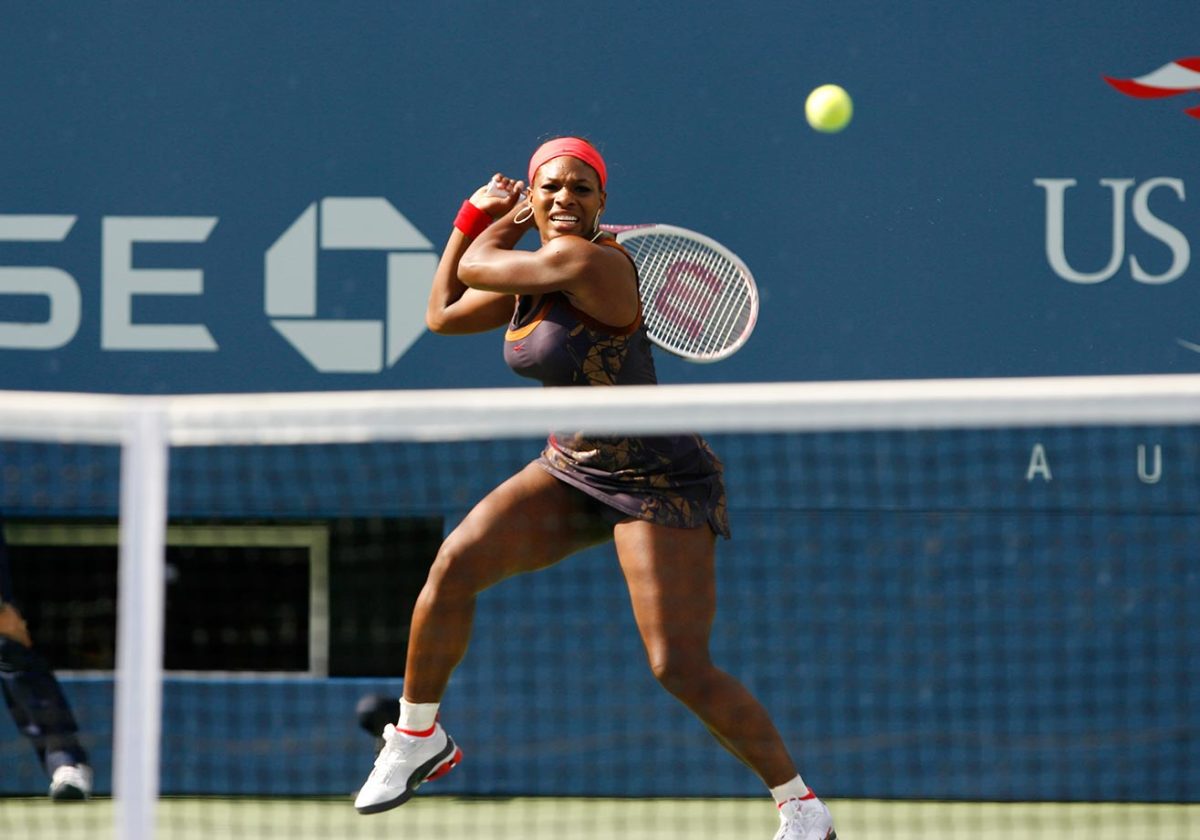
2006 Australian Open
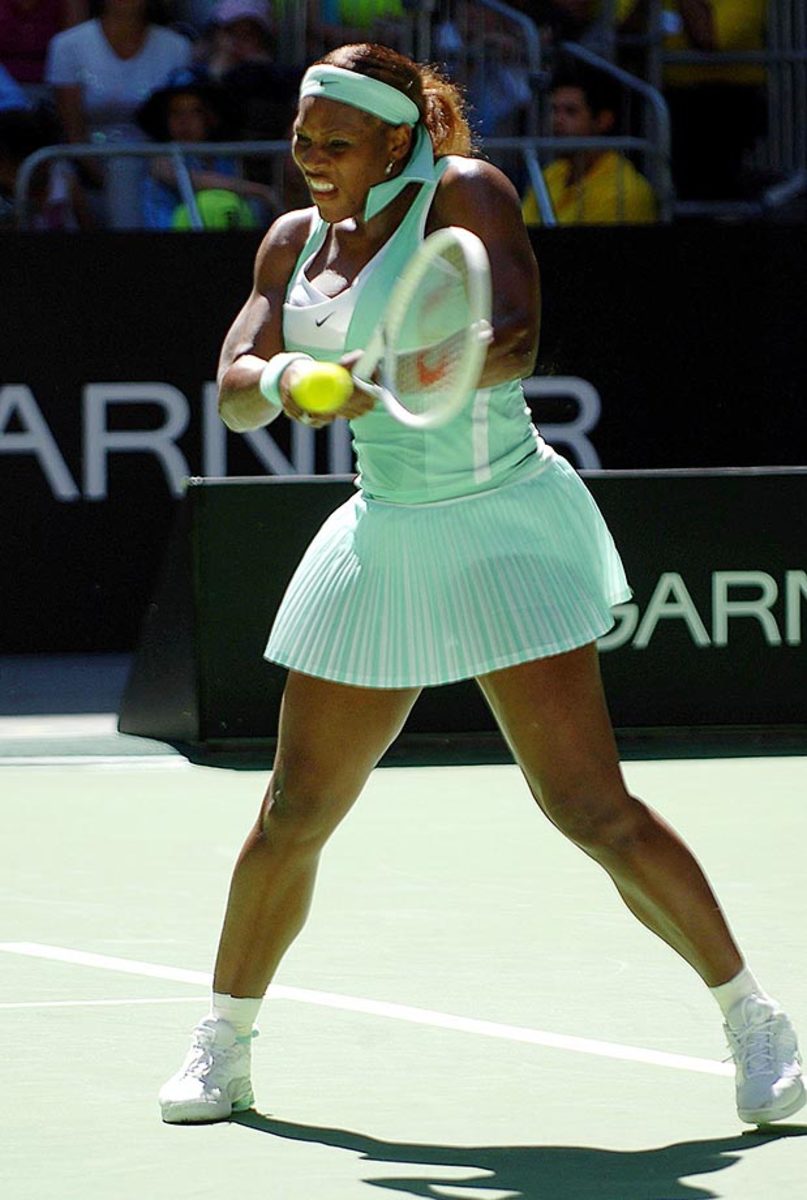
2005 U.S. Open
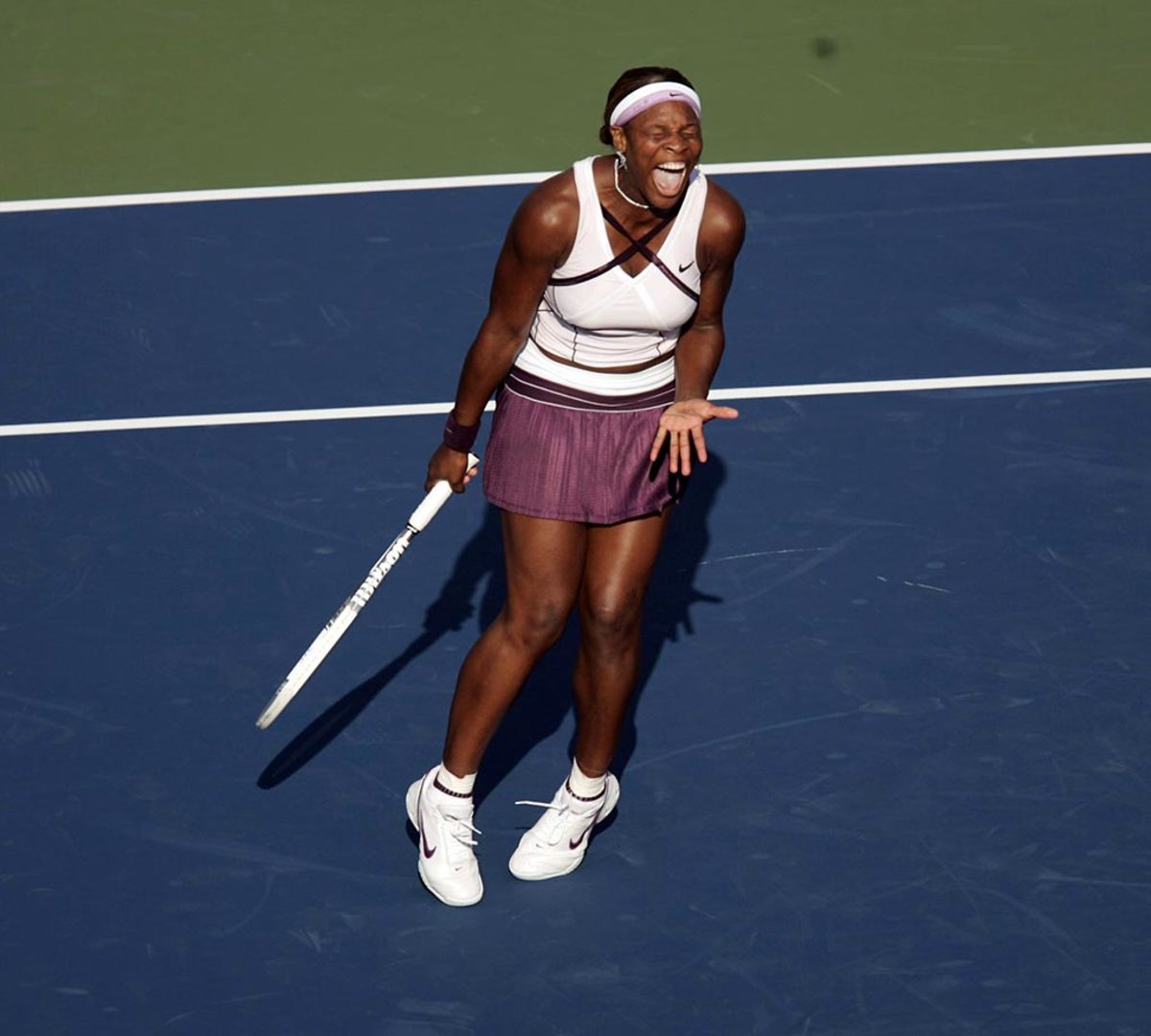
2005 Wimbledon
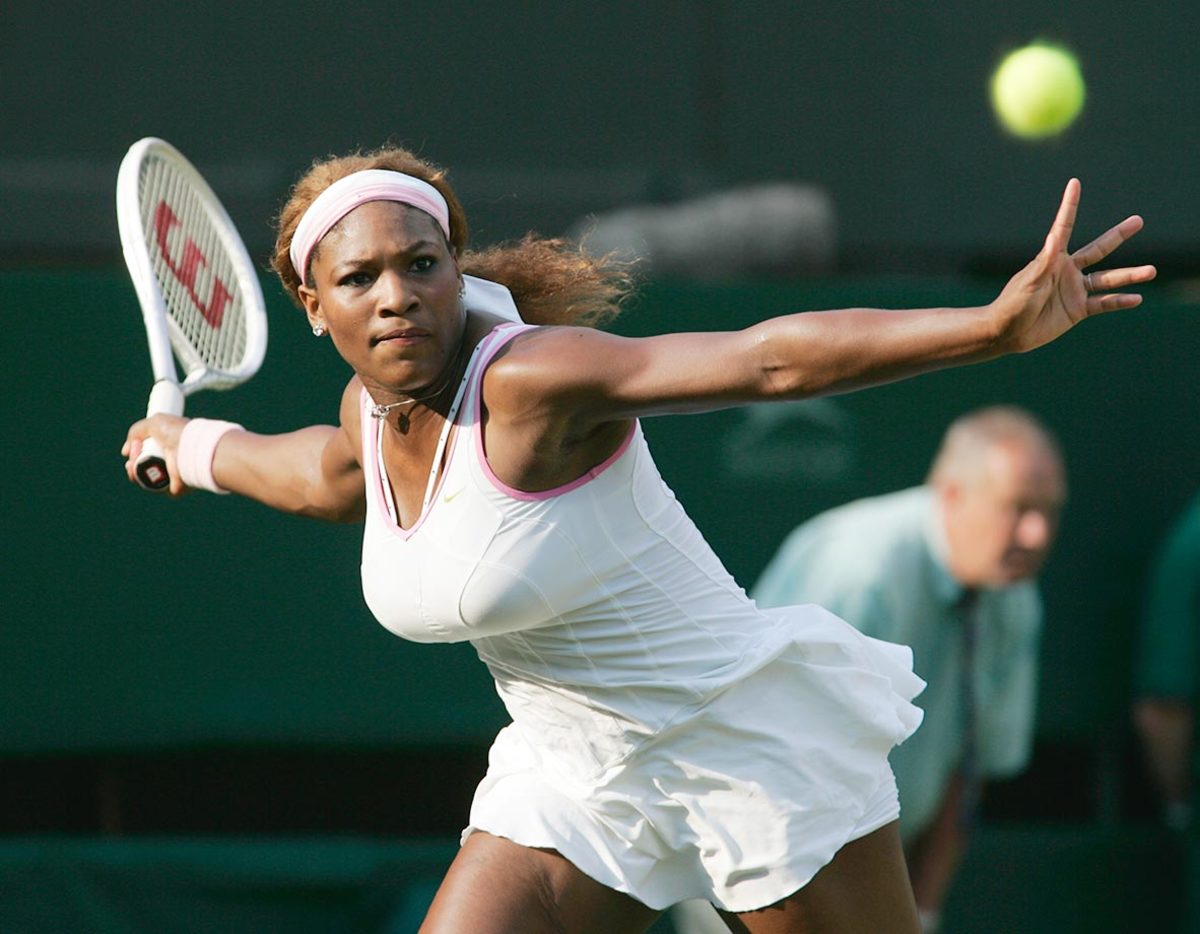
2005 Australian Open
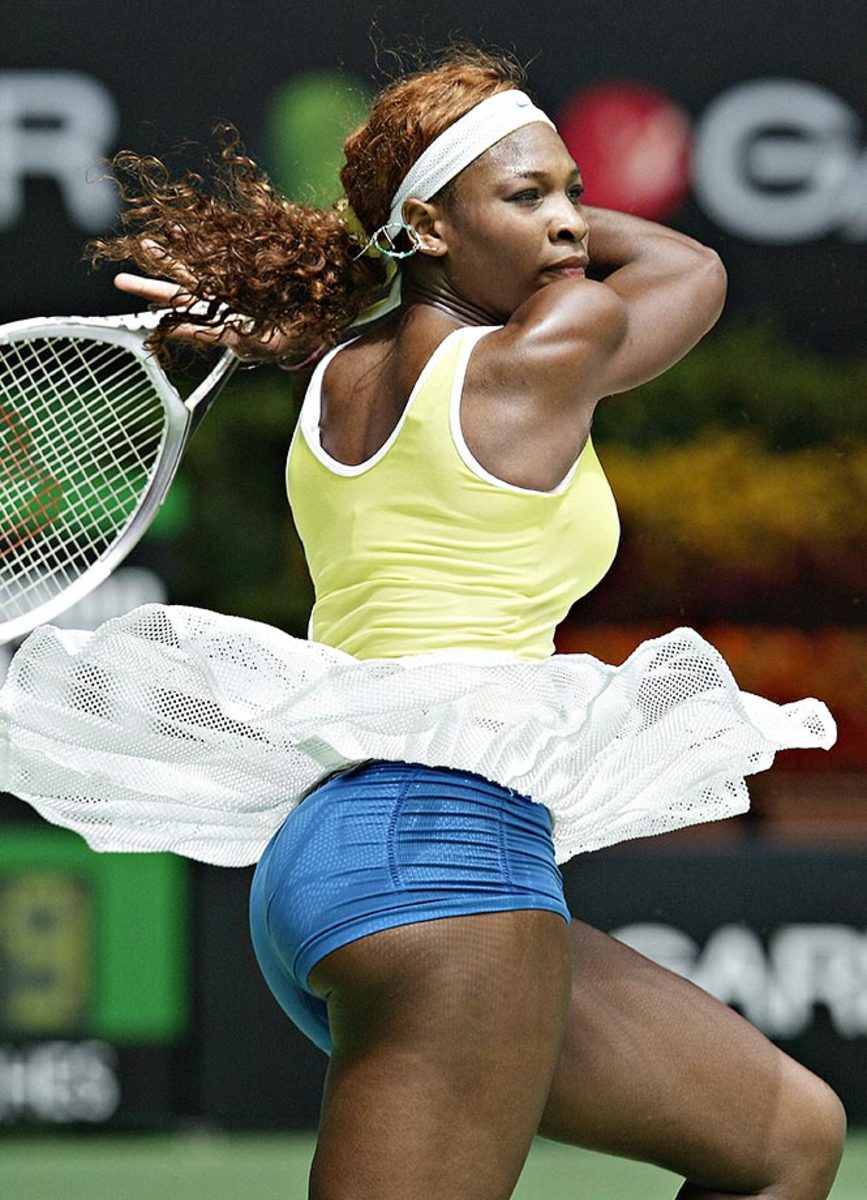
2004 U.S. Open
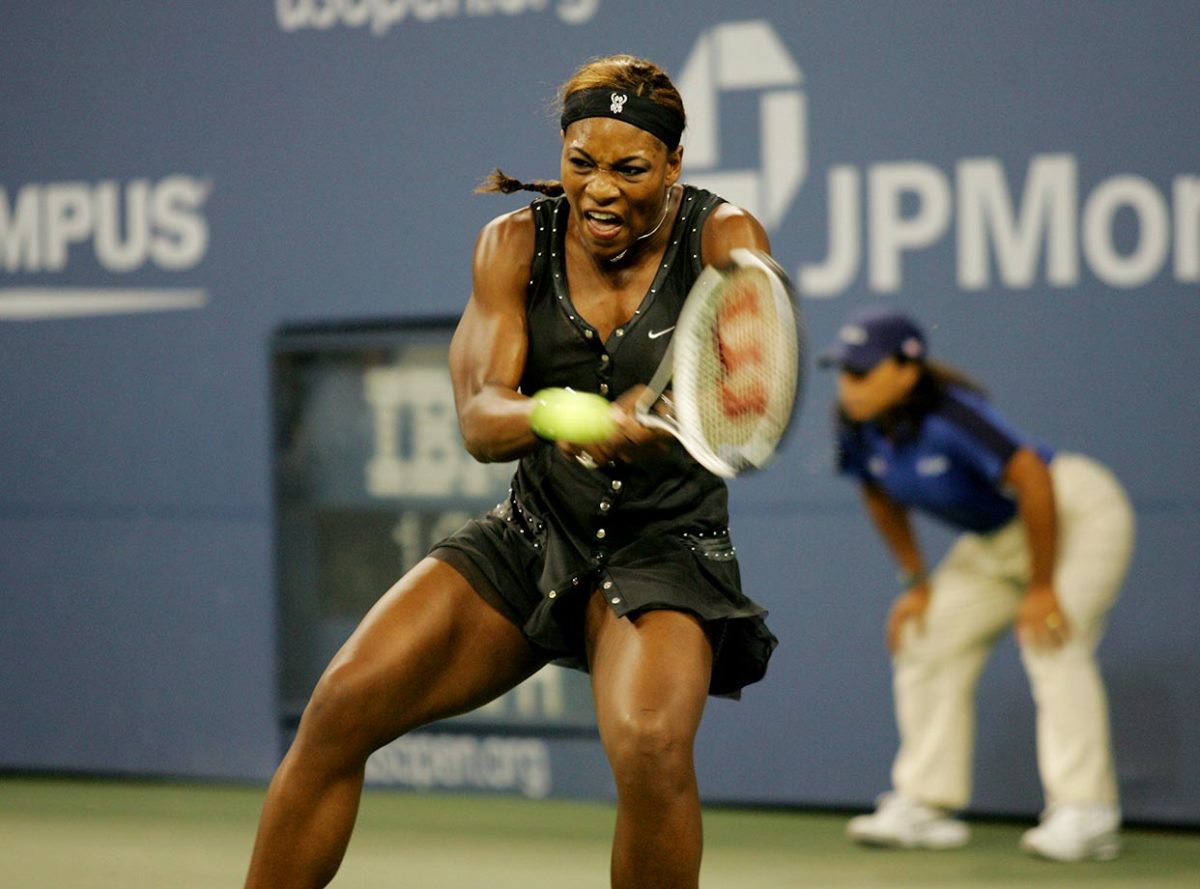
2004 Wimbledon
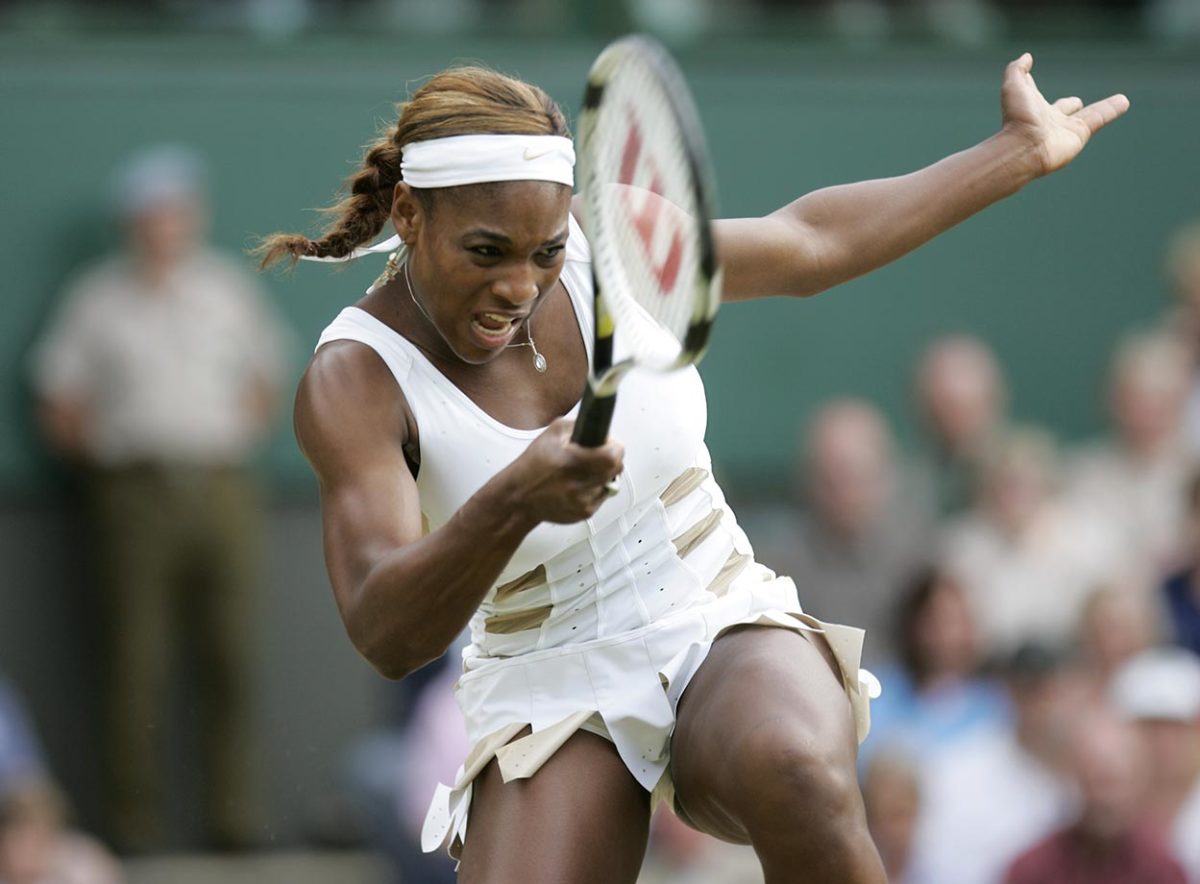
2004 French Open
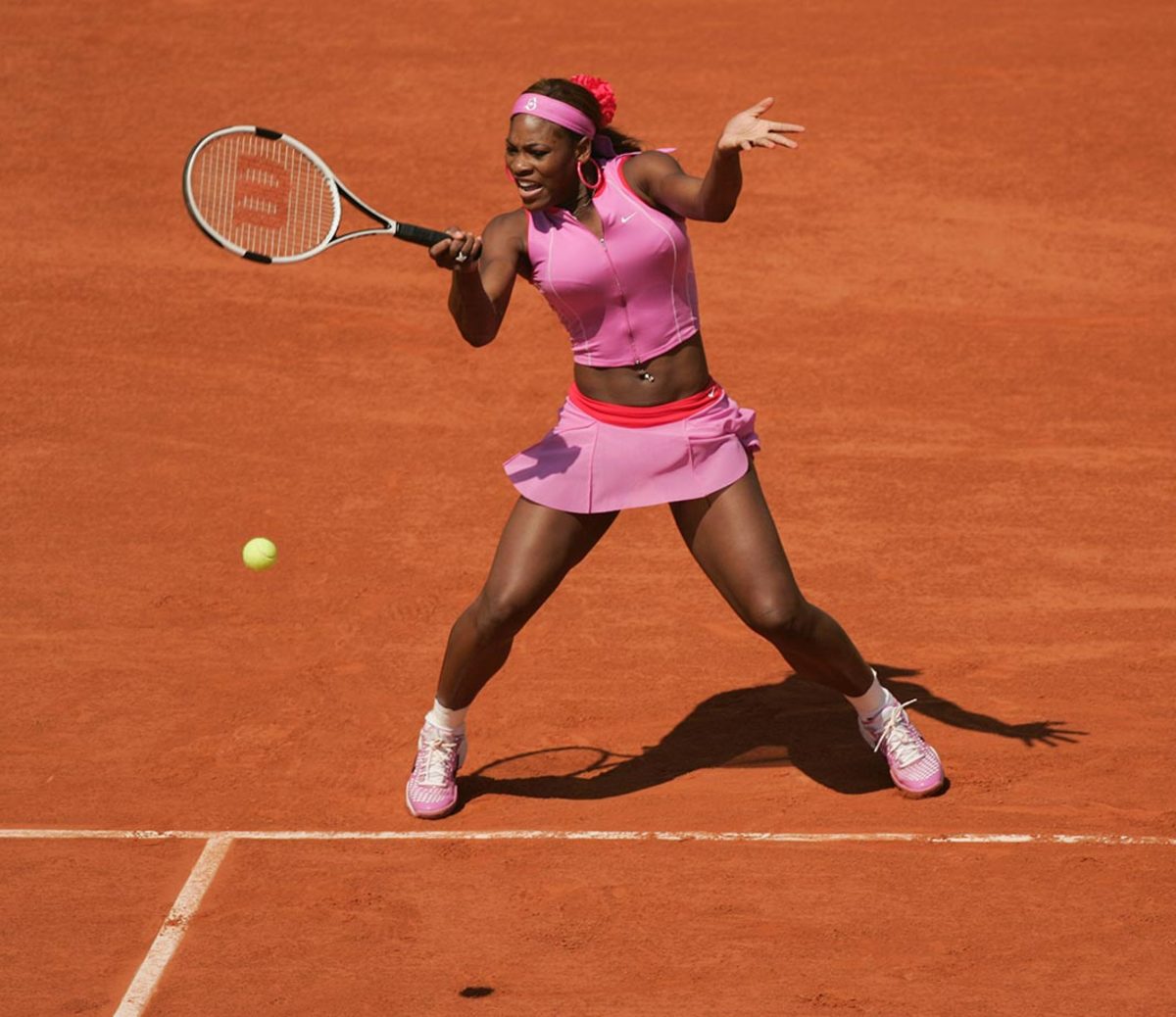
2003 Wimbledon
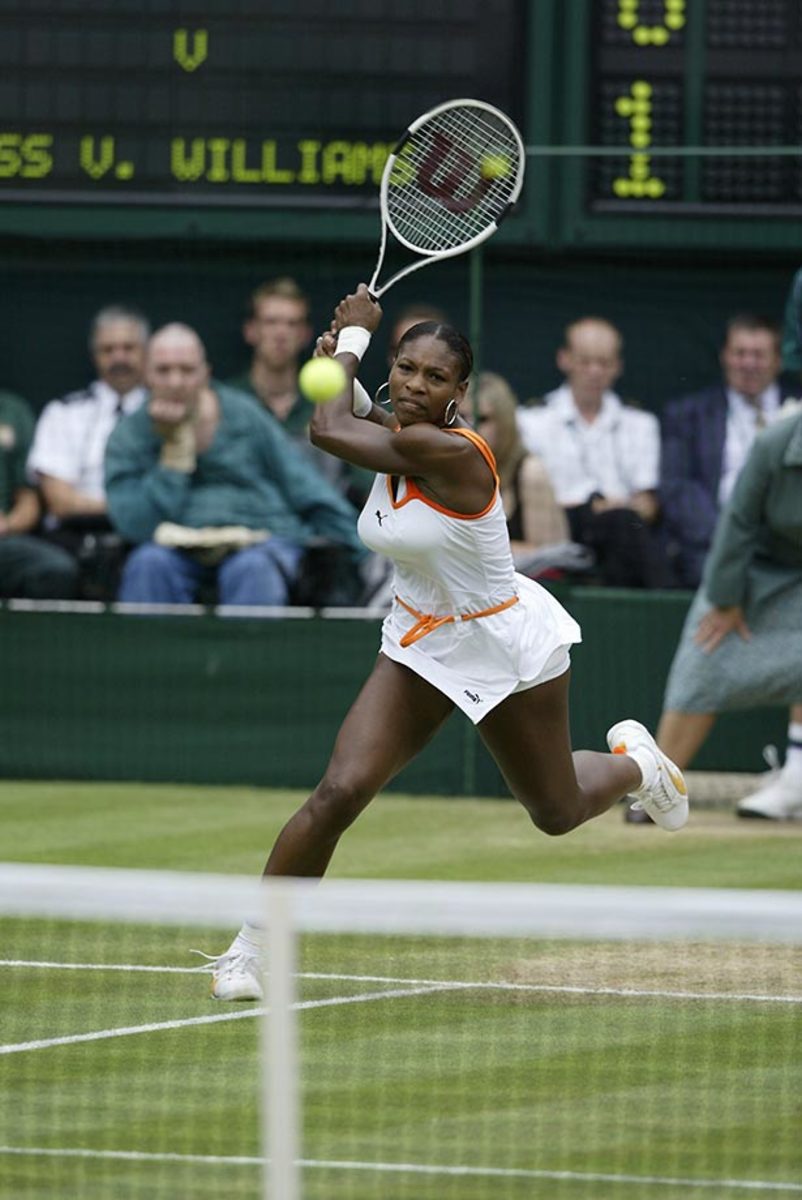
2003 French Open
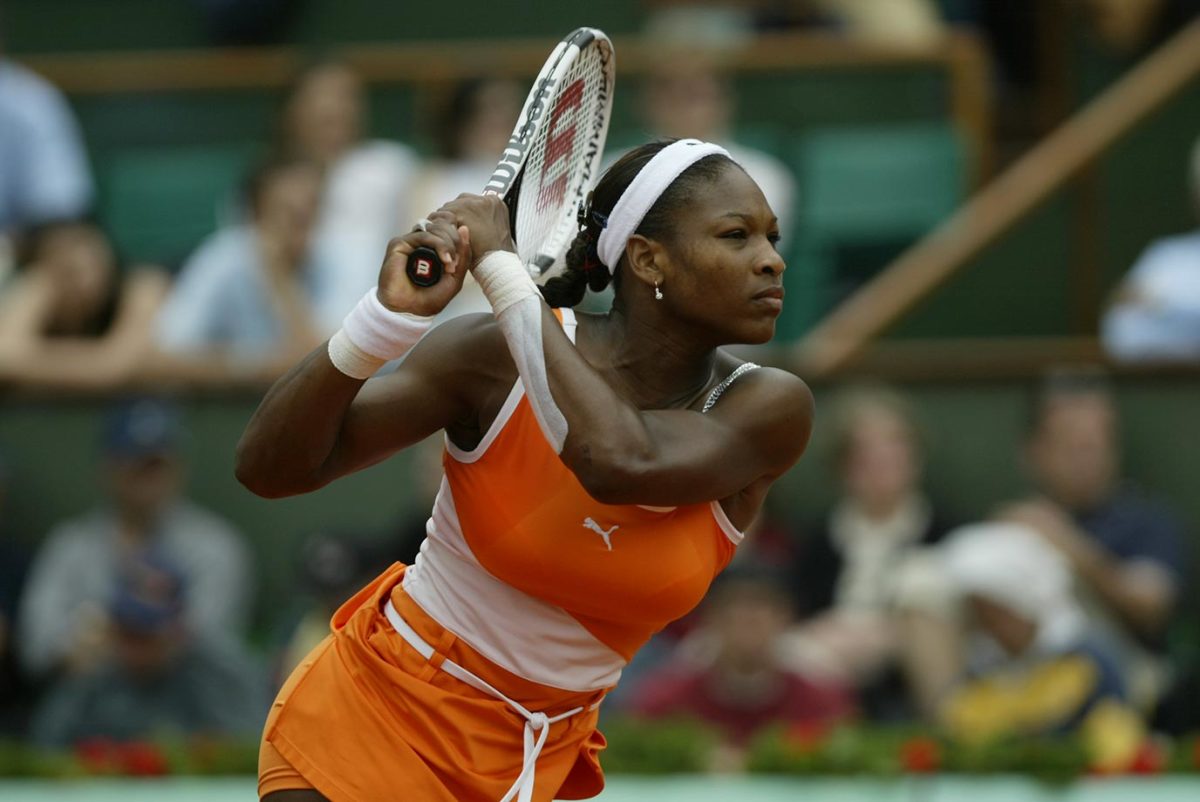
2003 Australian Open
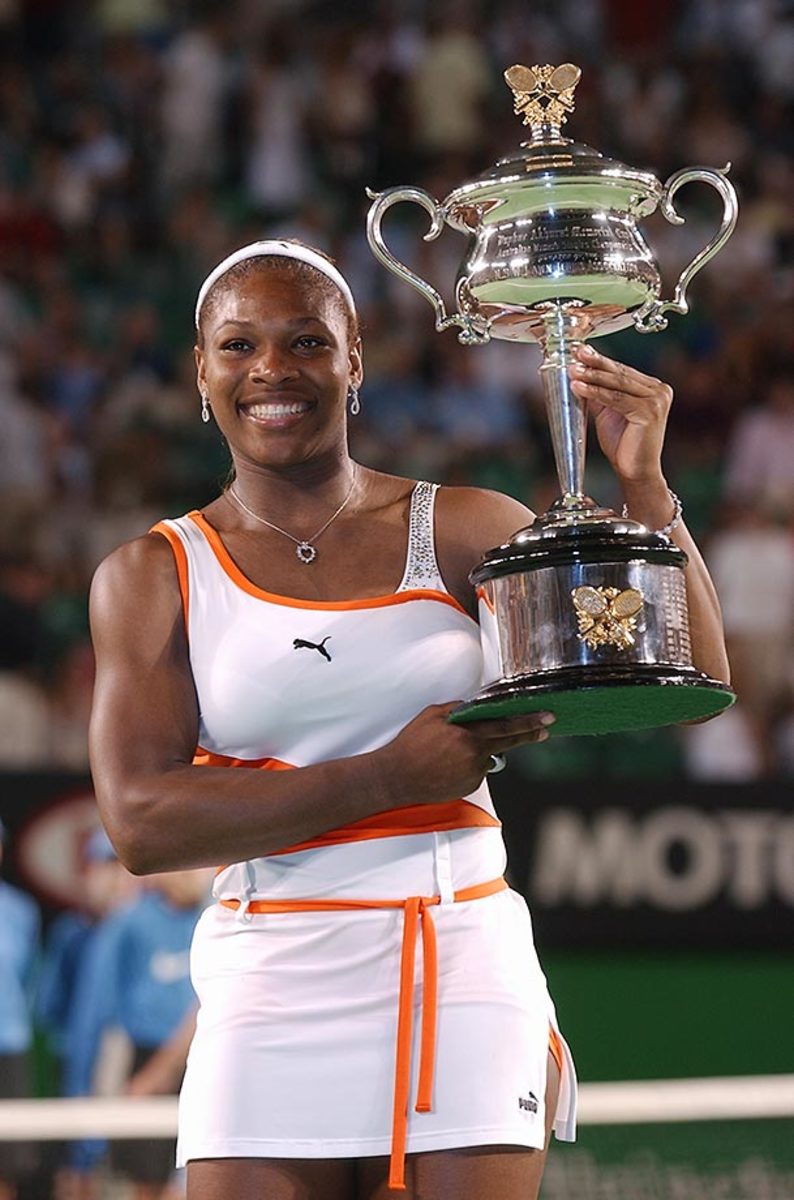
2002 U.S. Open
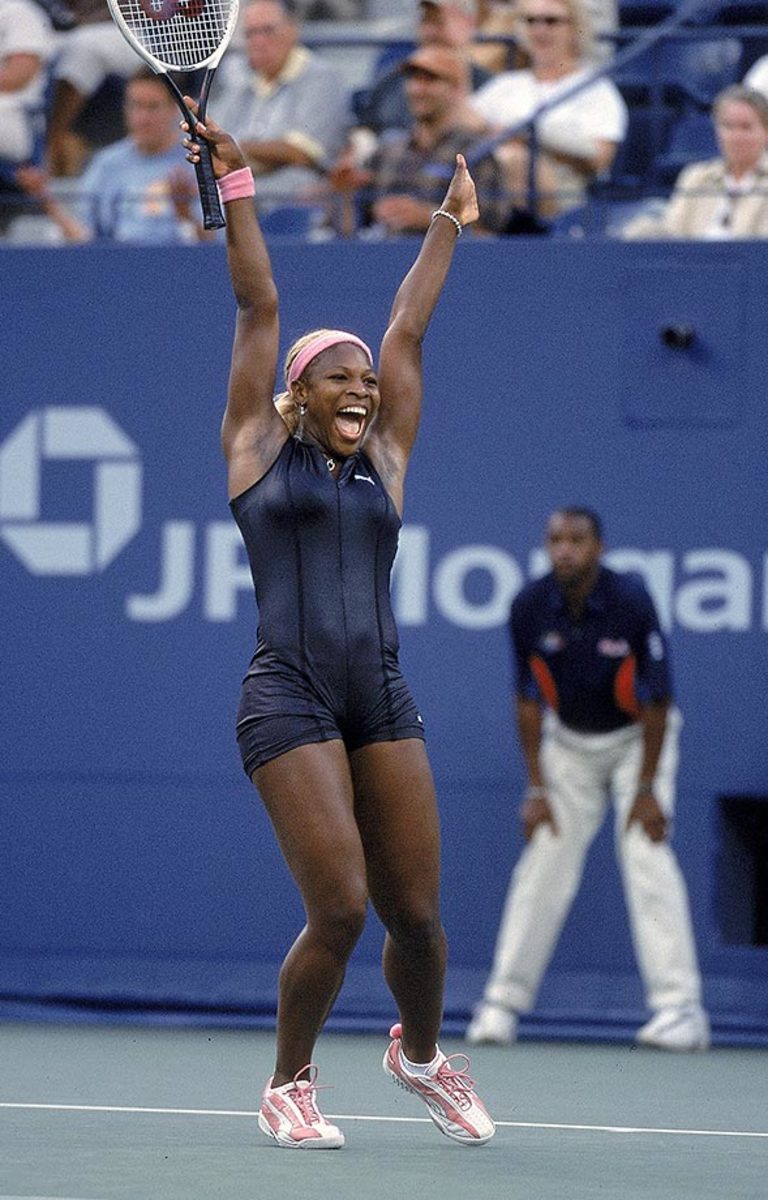
2002 Wimbledon
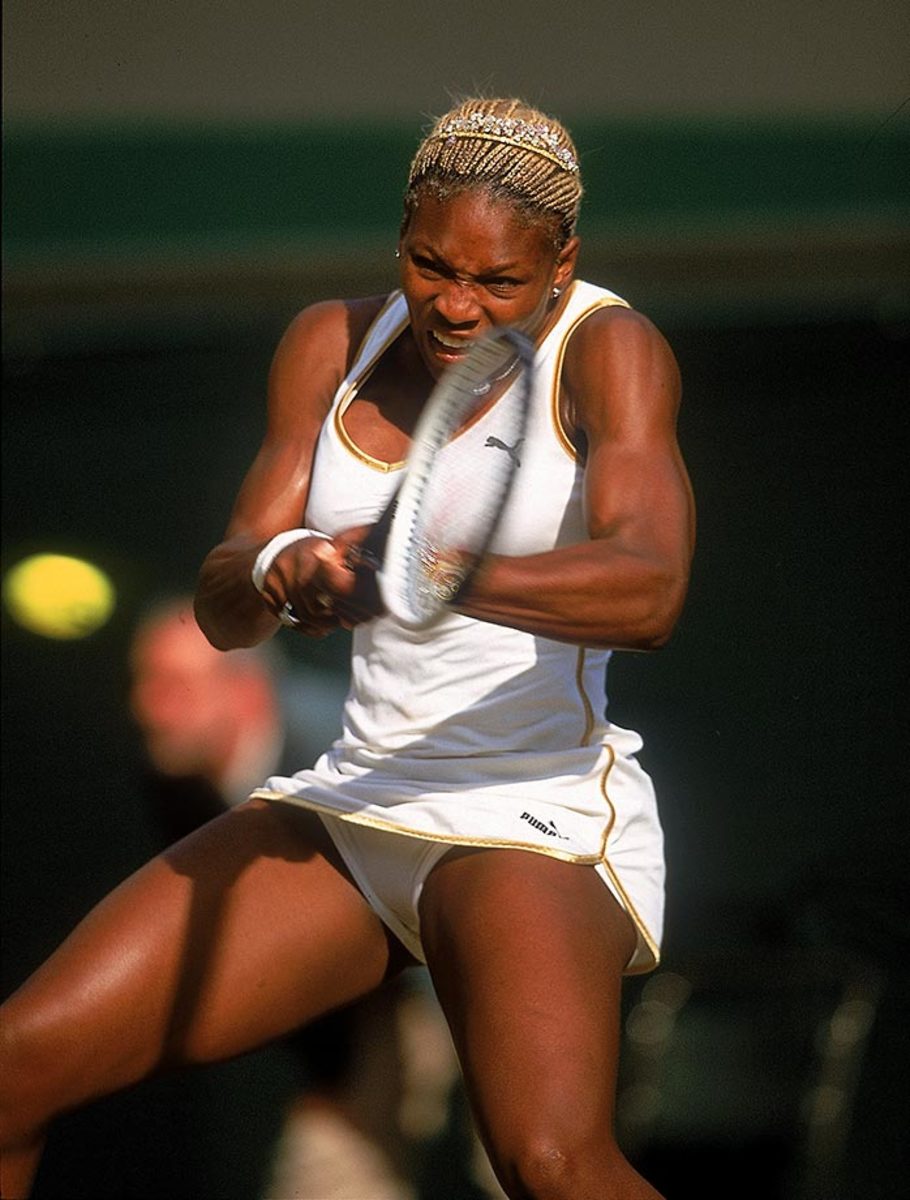
2002 French Open
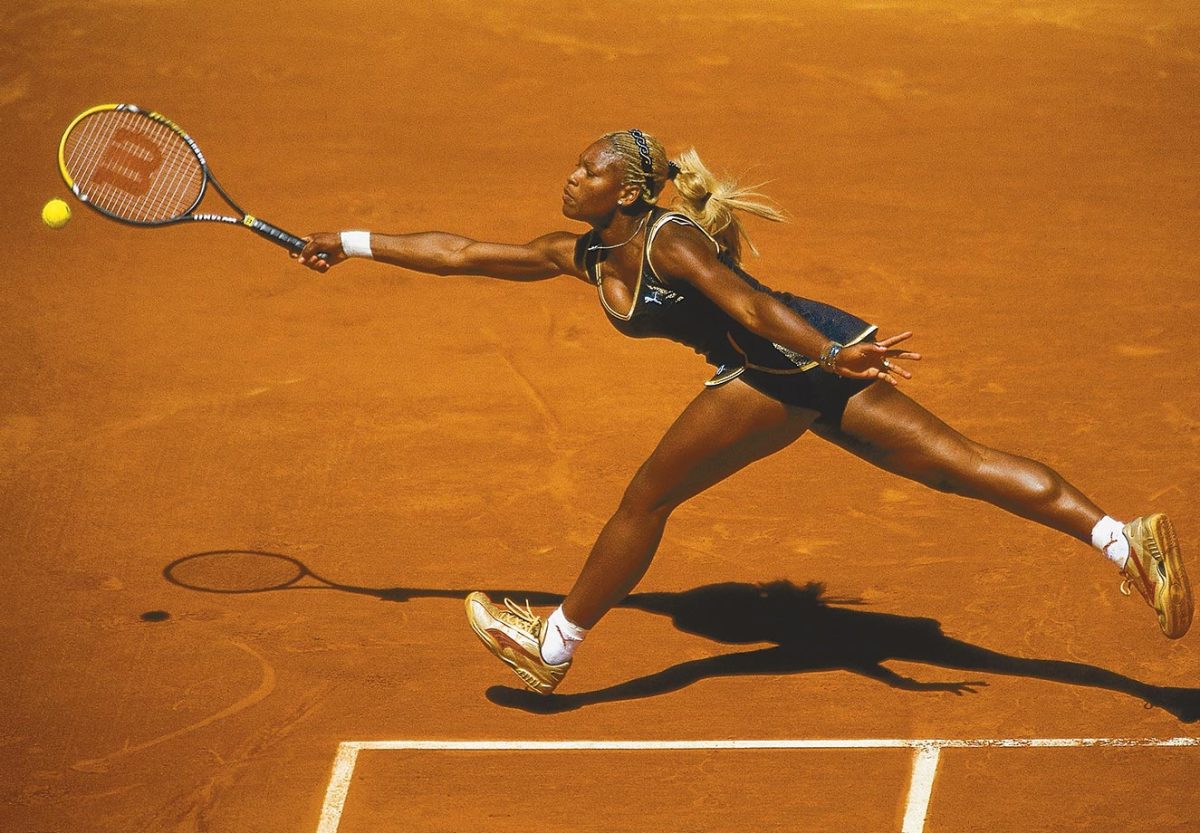
2001 U.S. Open
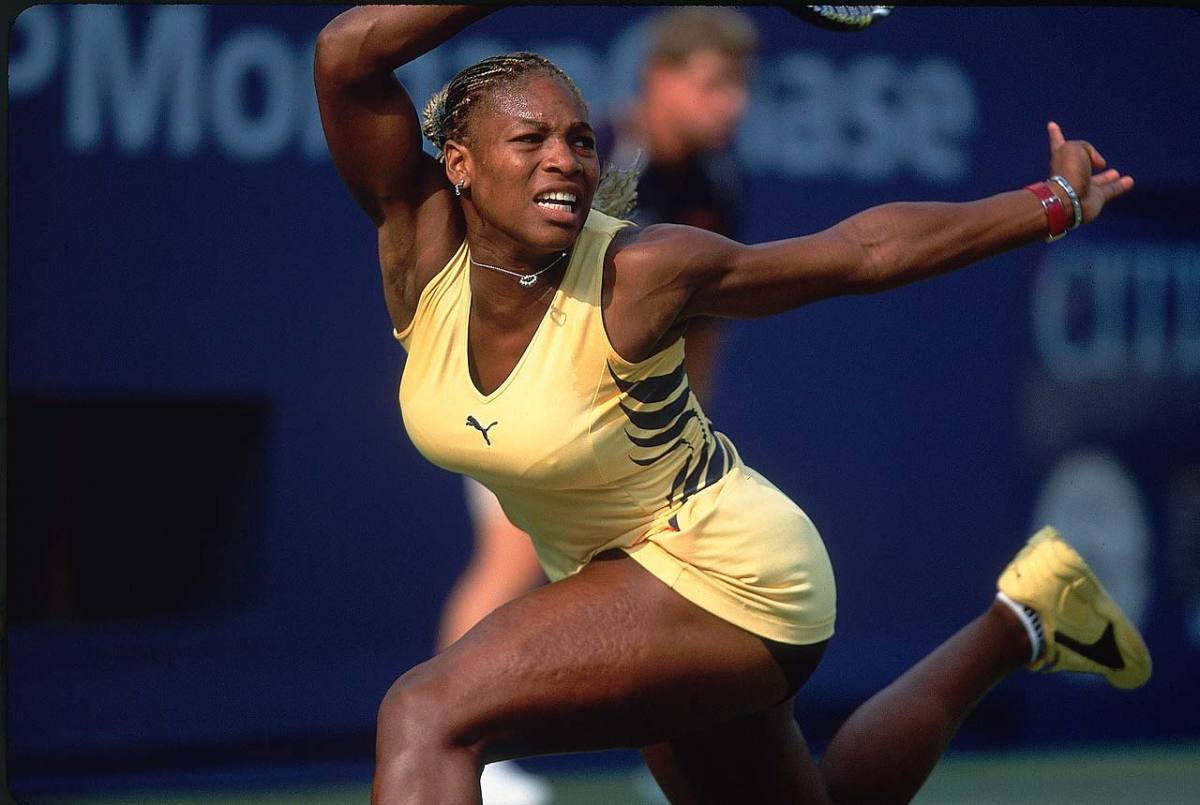
2001 Wimbledon
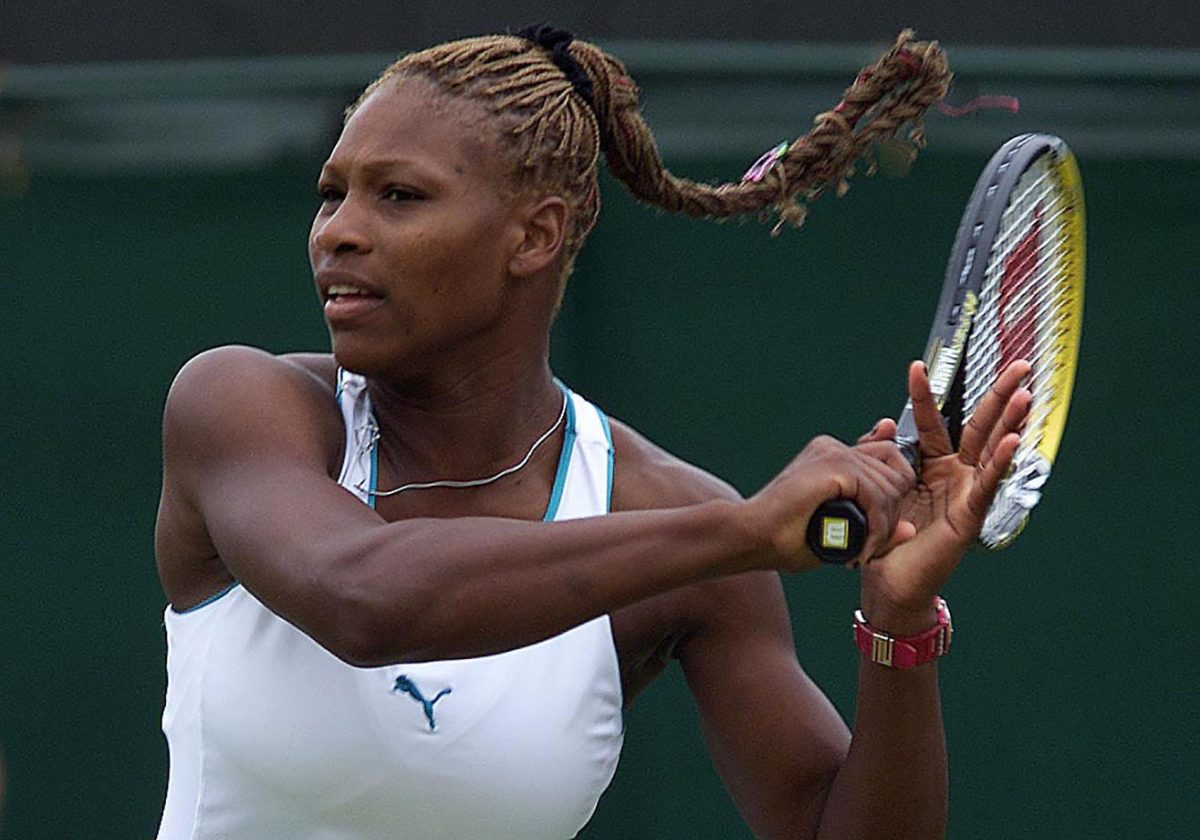
2001 French Open
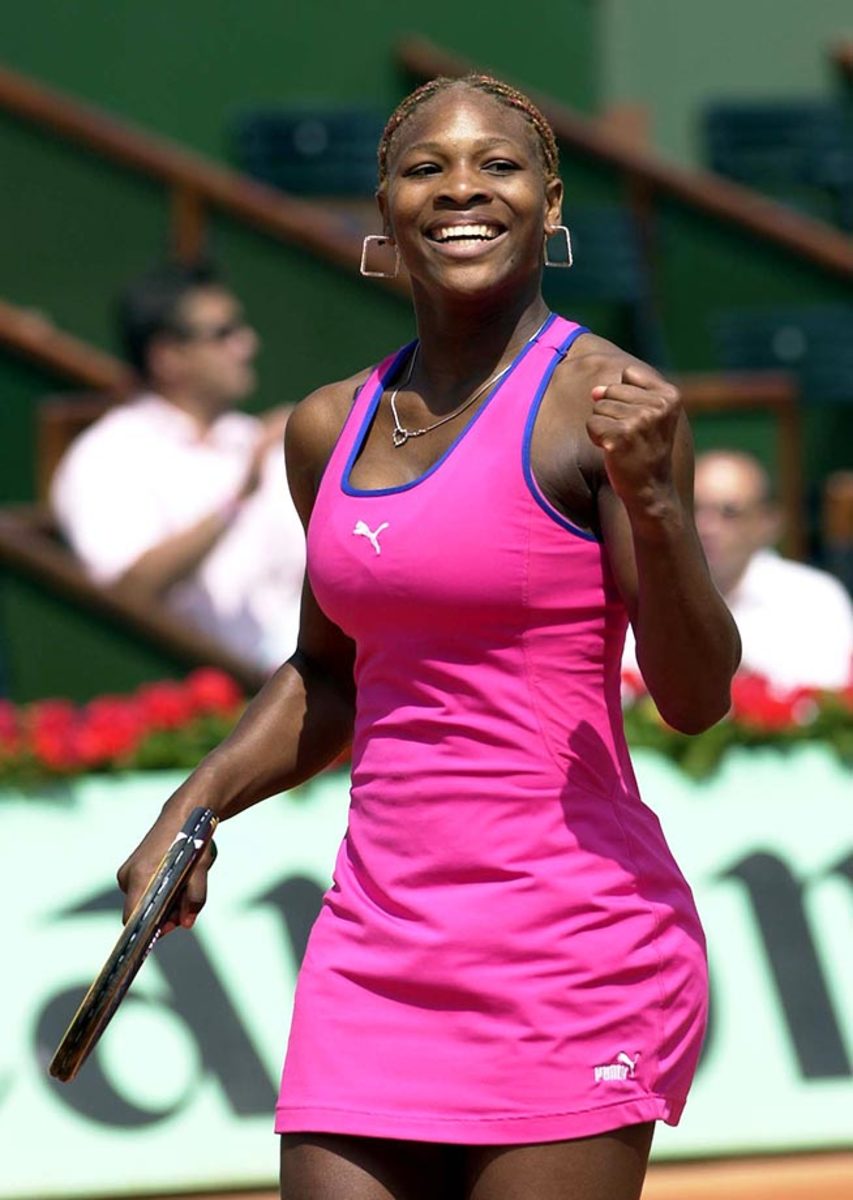
2001 Australian Open
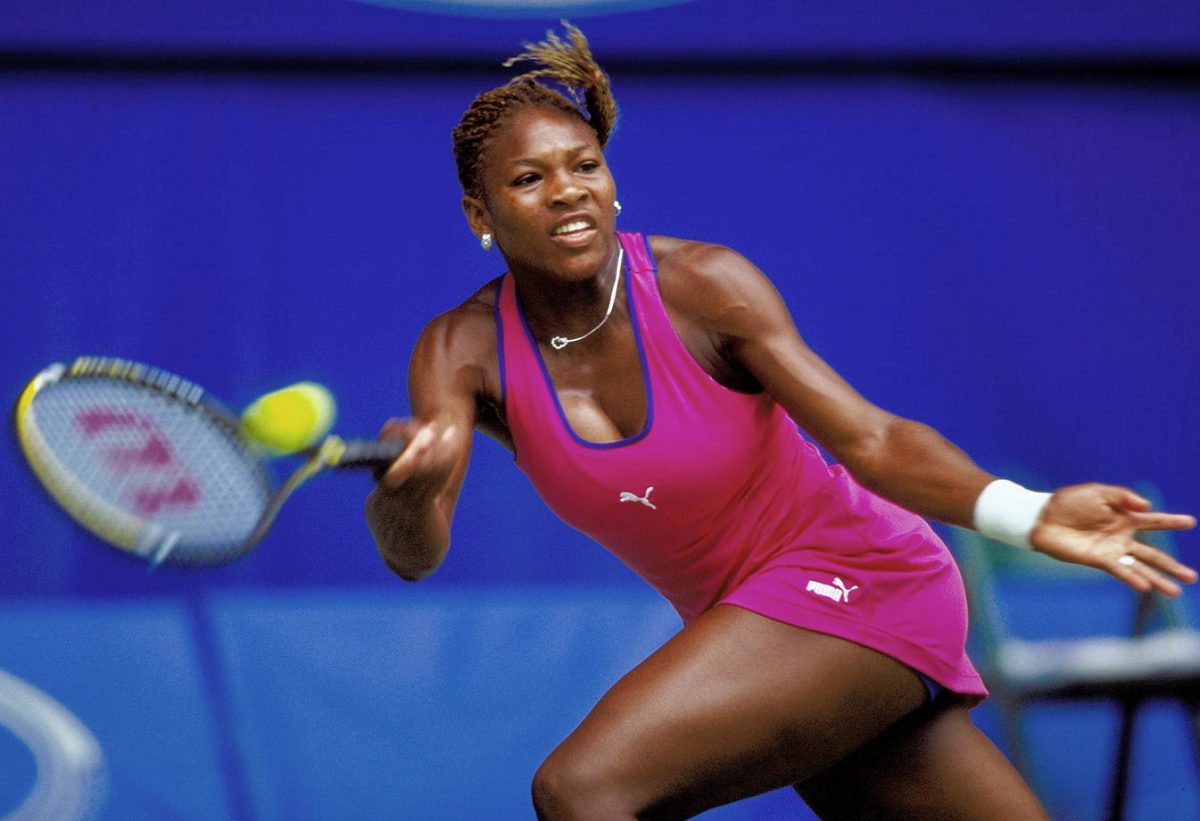
2000 U.S. Open
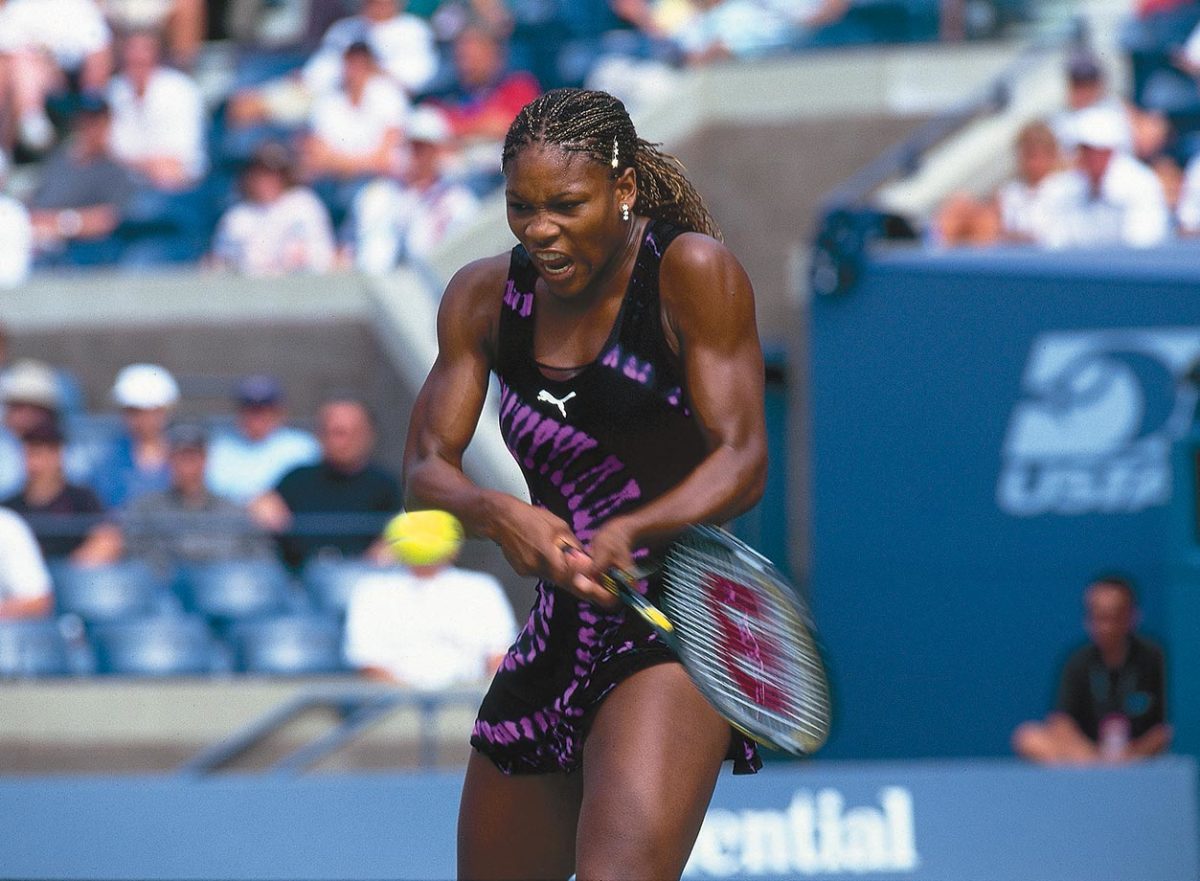
2000 Wimbledon
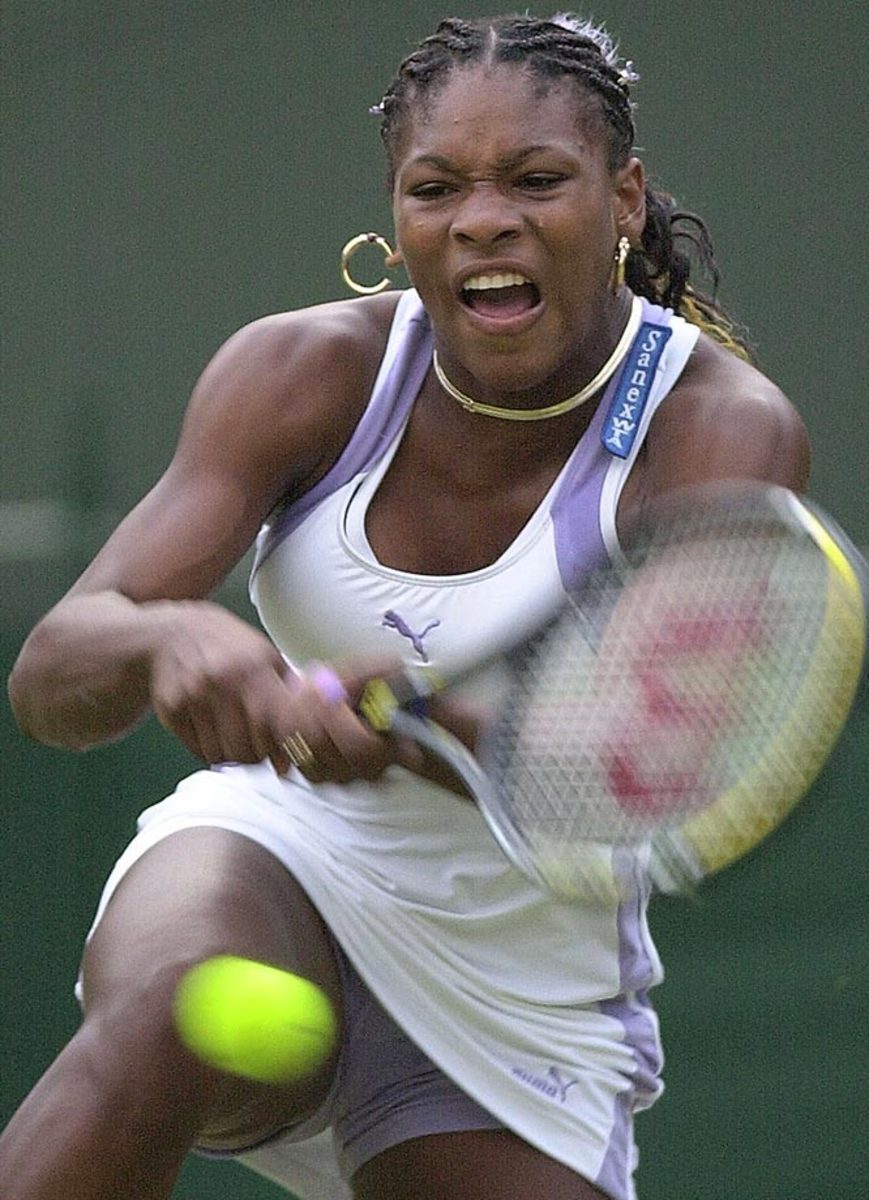
2000 Australian Open
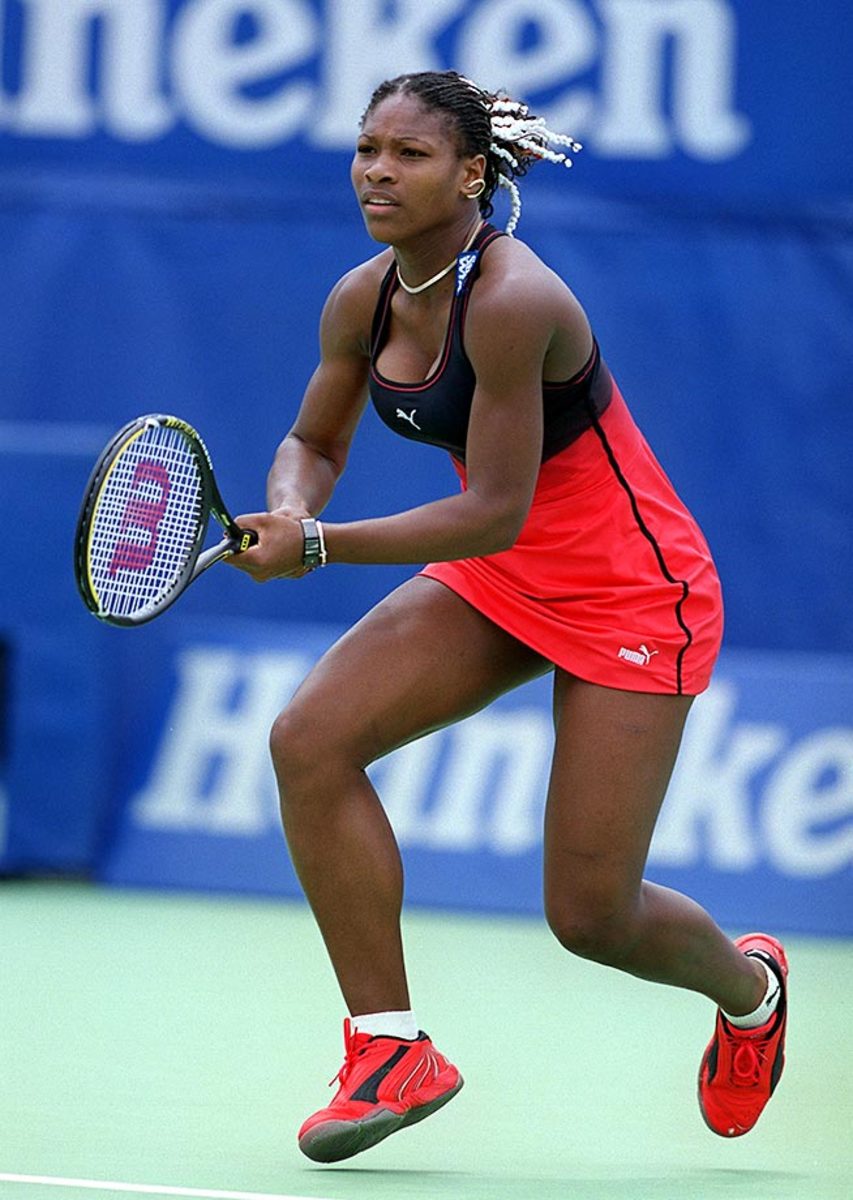
1999 U.S. Open
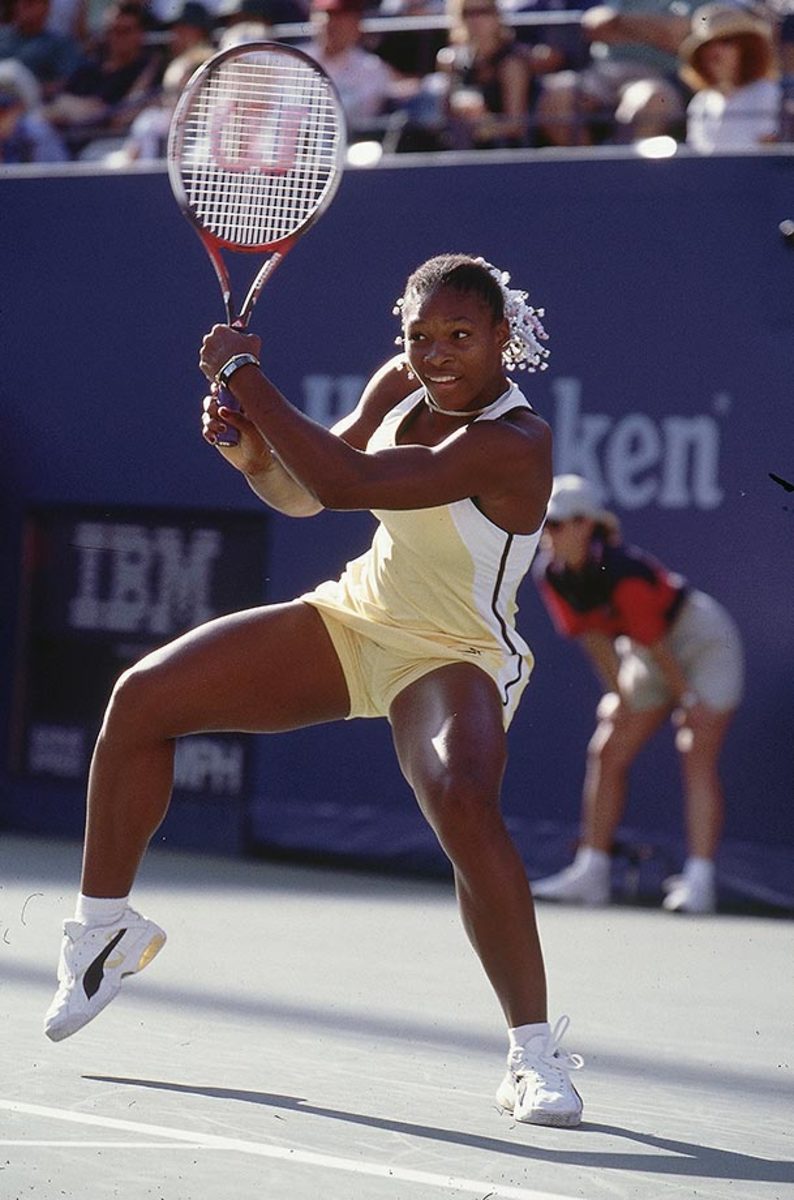
1999 French Open
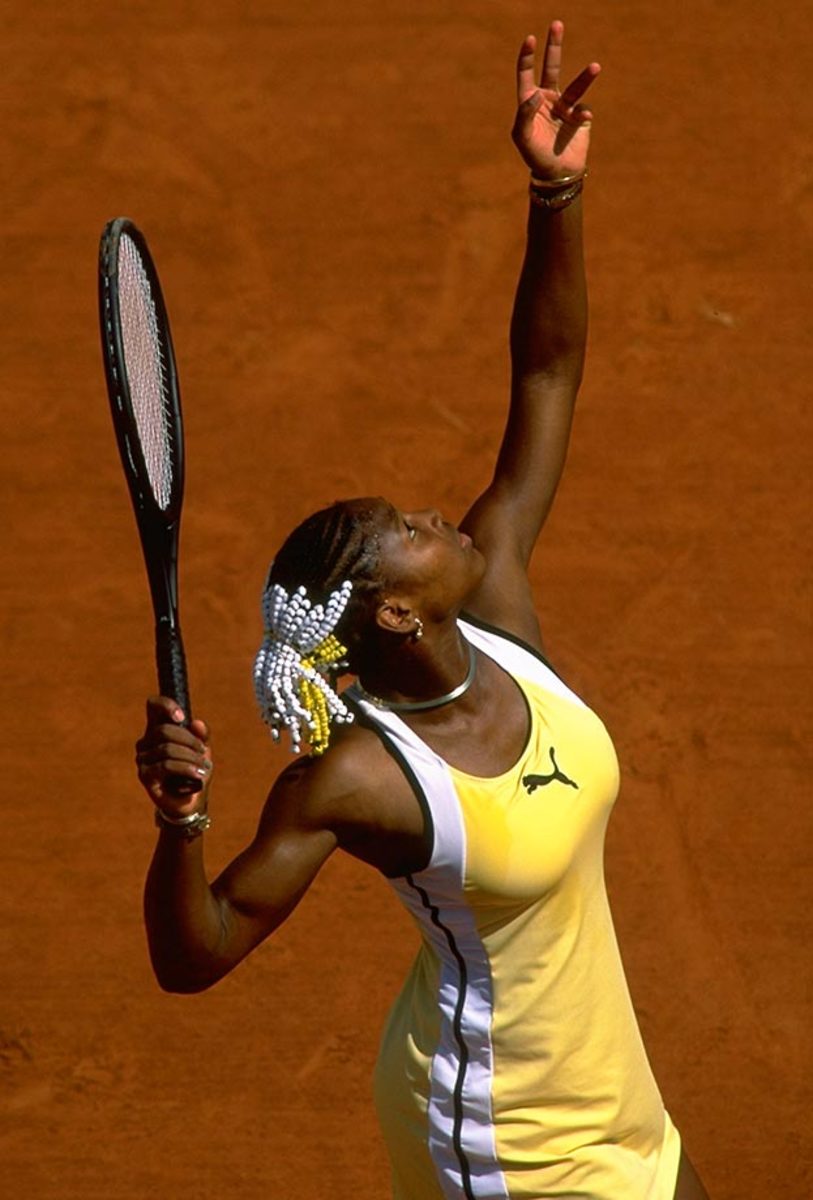
1999 Australian Open
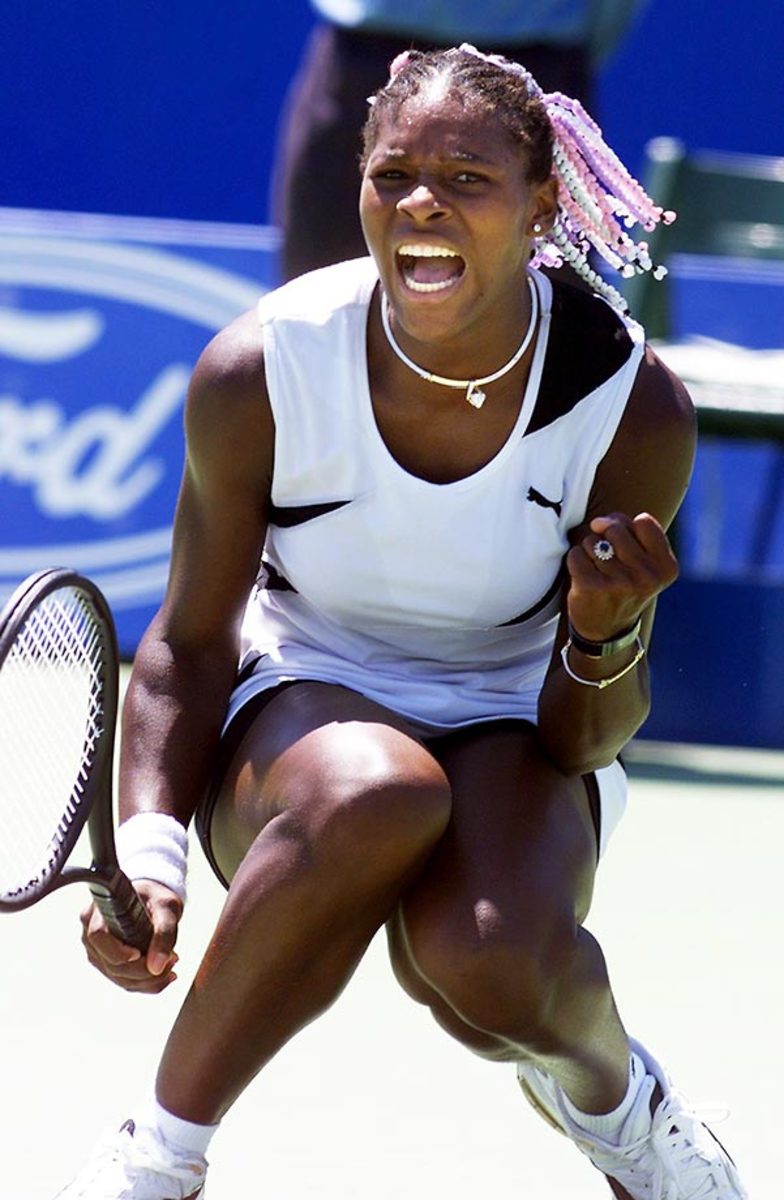
1998 U.S. Open
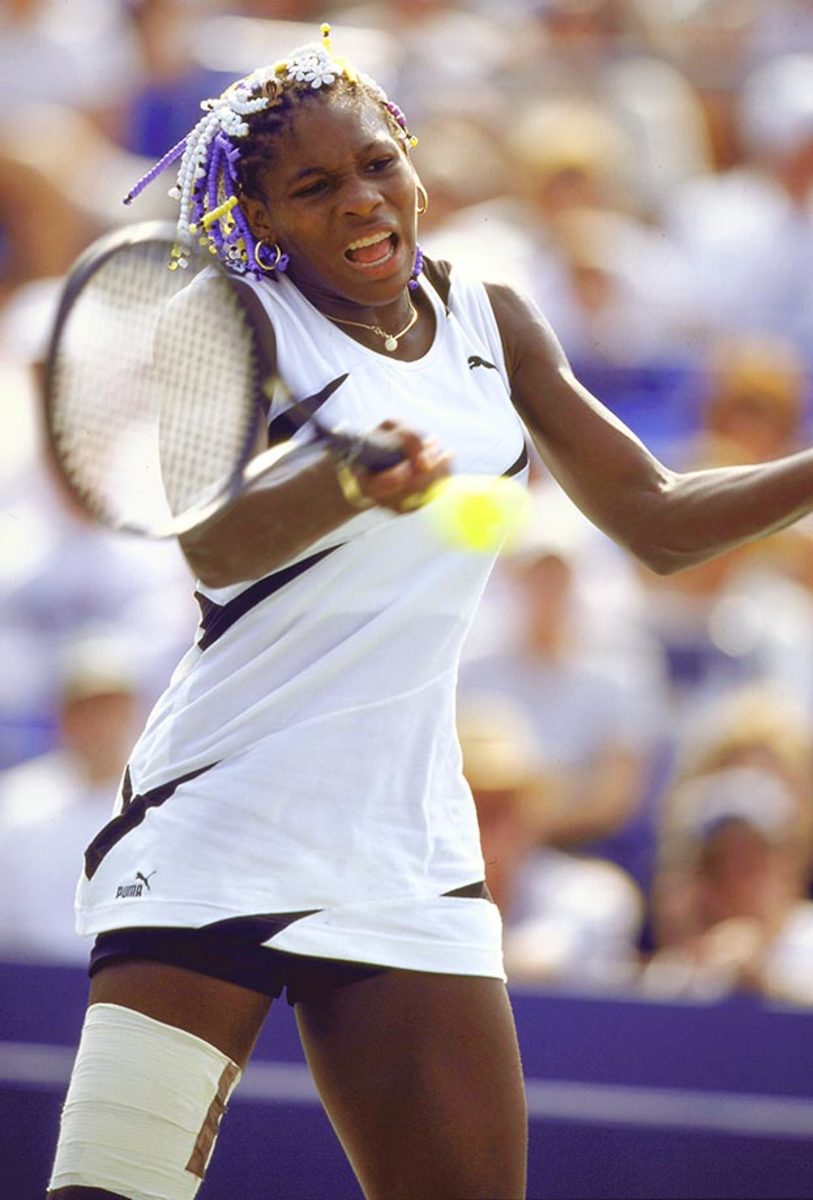
1998 Wimbledon
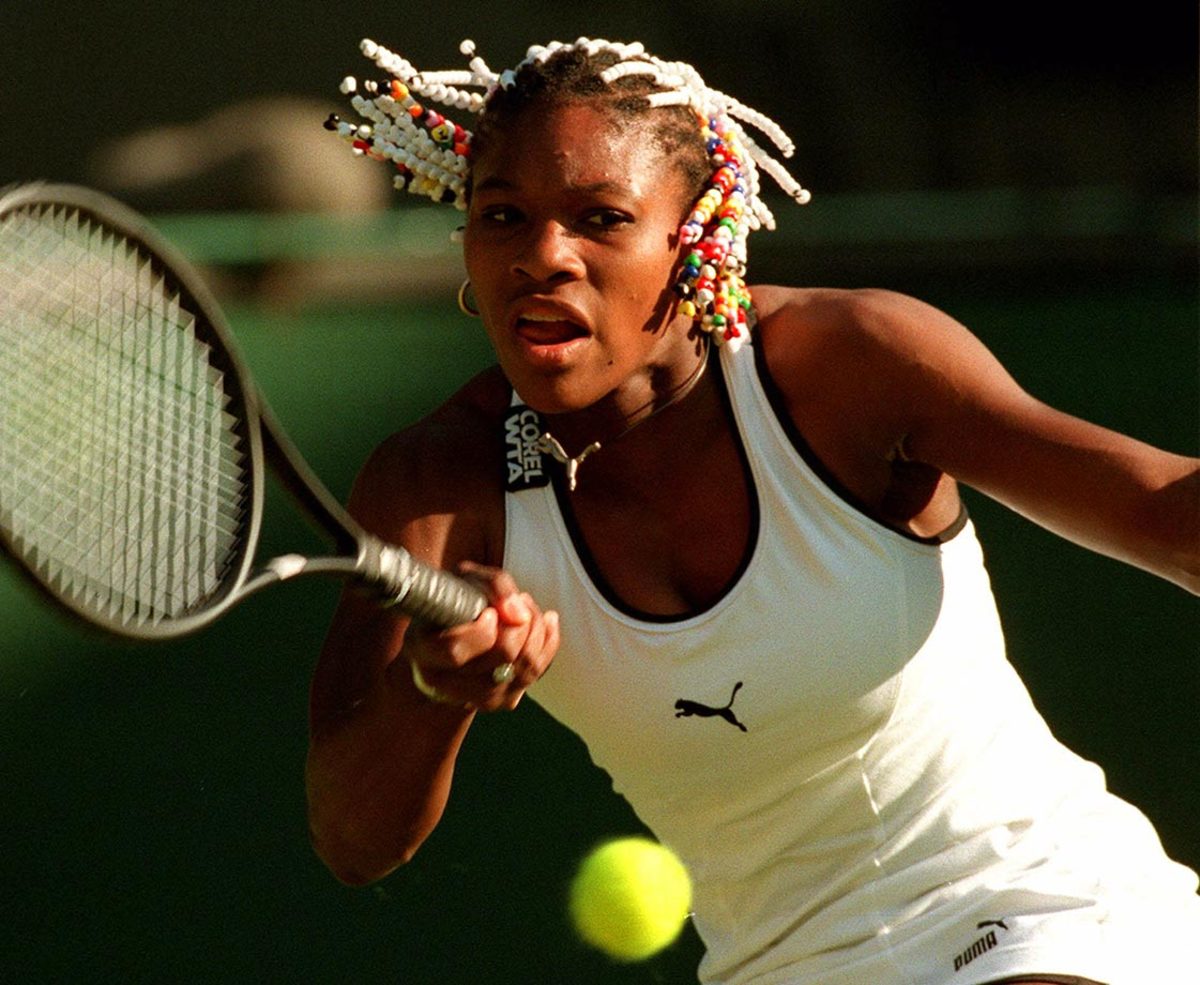
1998 French Open
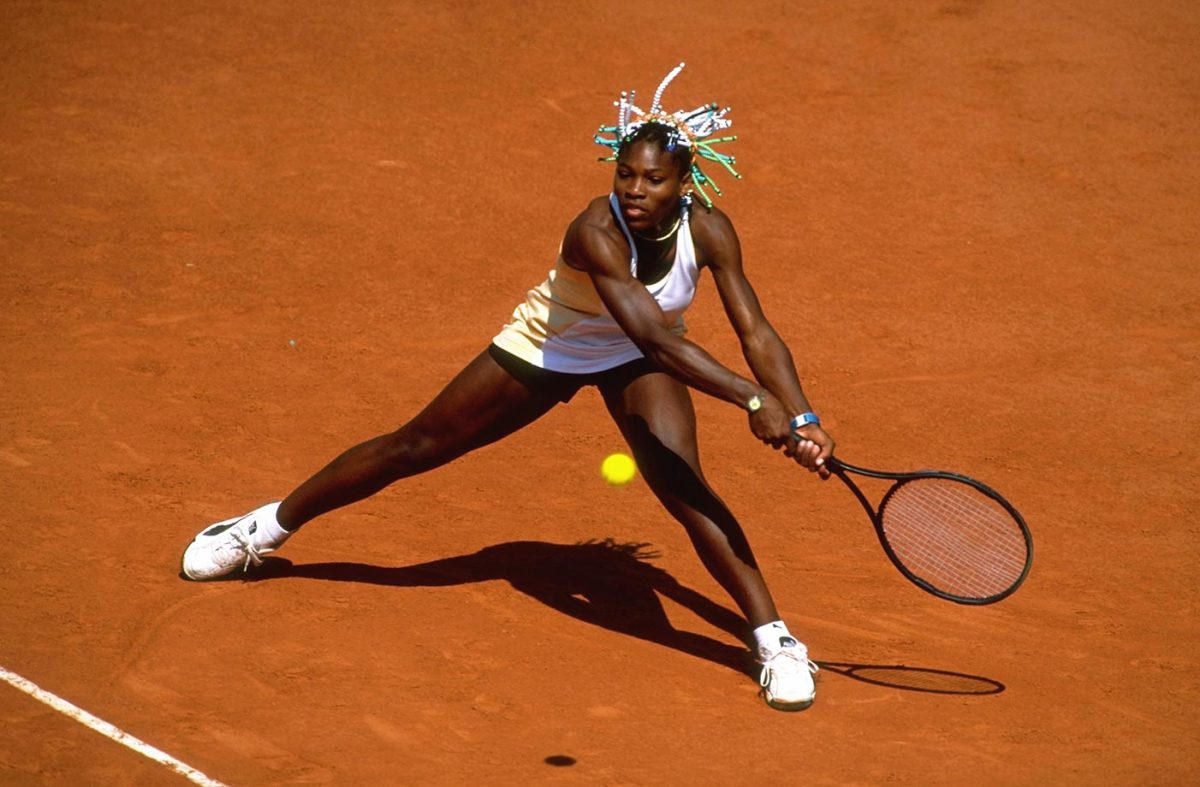
1998 Australian Open
